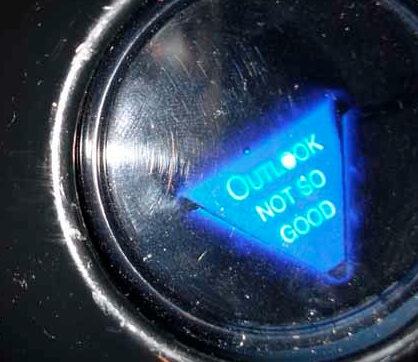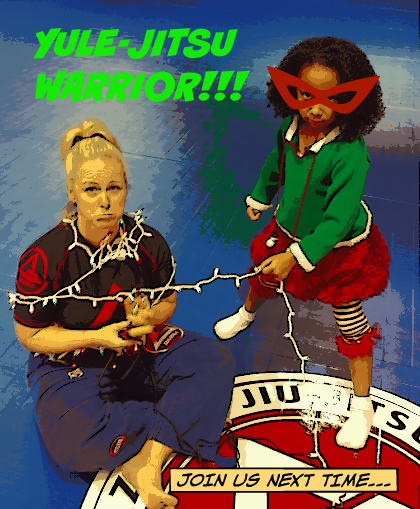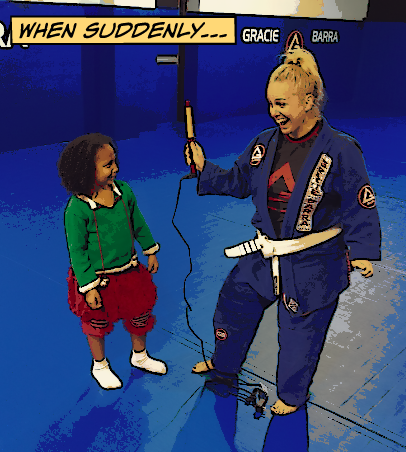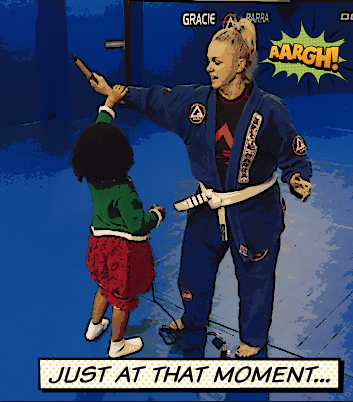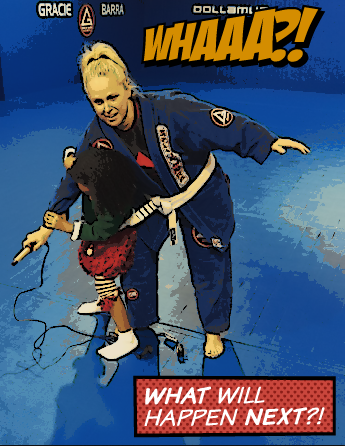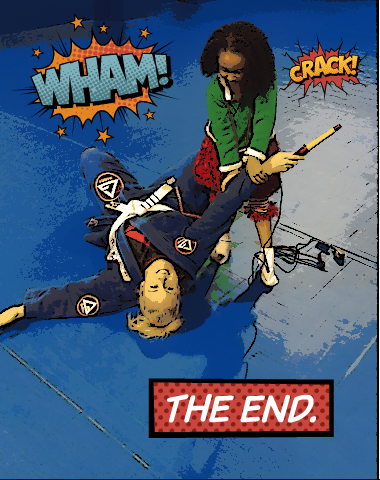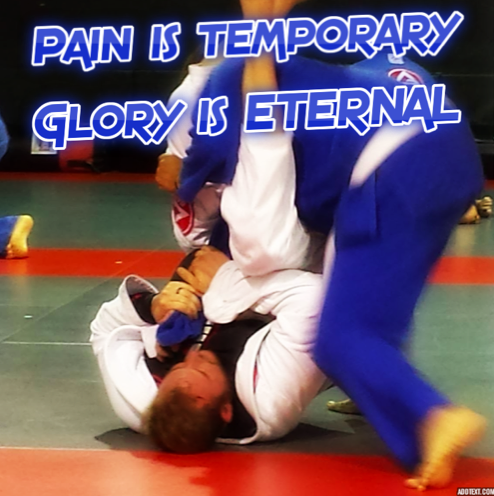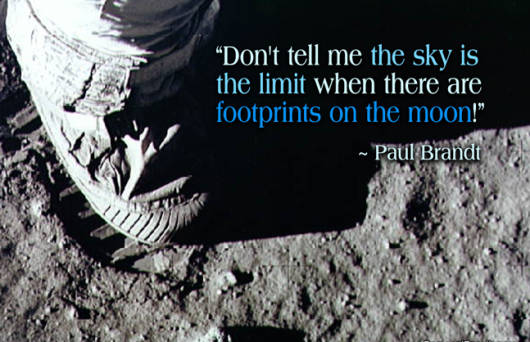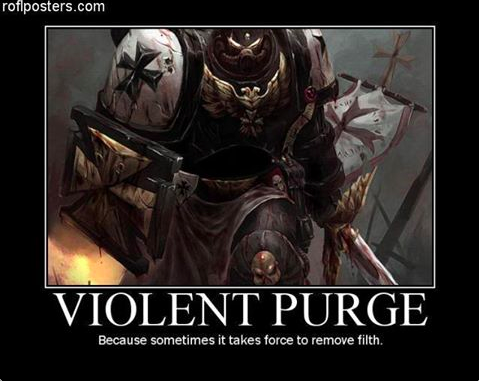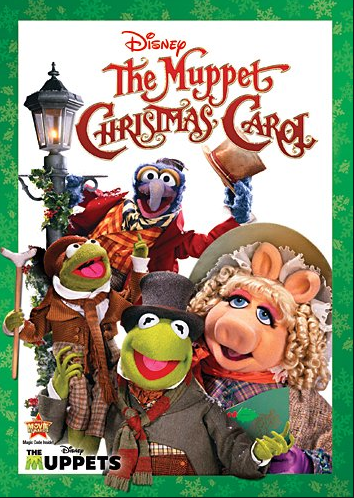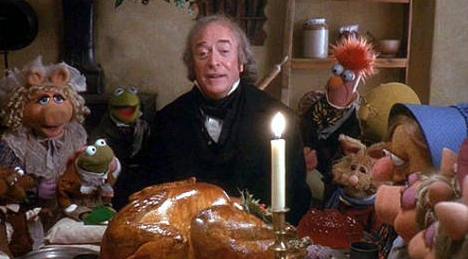Kristen Lamb's Blog, page 45
January 6, 2016
Pay the Writer Part 2—Blood Diamonds & Fair Trade Fiction
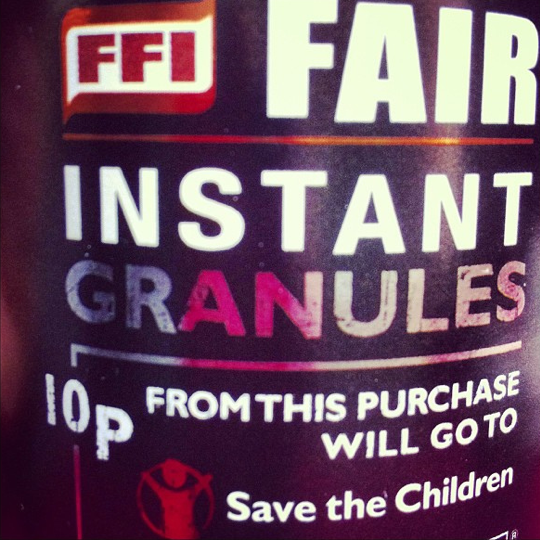
Image courtesy of Hoard Lake on Flickr Commons
You aren’t famous until someone famous calls you an idiot :P . As I was finishing up Monday’s post about how to support writers with reviews, I found out I’d hit the big time. Thus I went over and checked out the counter to my scandalous assertion that writers should be paid.
Aaaand, yeah. Still not wavering in my opinion.
Also think my critics have missed the point. Instead of protecting the old ways that well, for lack of a better term… suck and don’t benefit writers (or readers, publishers or even bookstores)—how about we start doing things differently?
GASP!
So long as we protect sacred cows because that’s what we have always done? Nothing changes. But agents and editors and authors and pundits will all have fun blogging that I hate used bookstores (untrue) and how all of us should be grateful for the system as it is.
Sure.
As for me? I may not change things, but I will break my neck trying :P .
First, this bugged me.
Please Stop Assuming All Customers are Broke
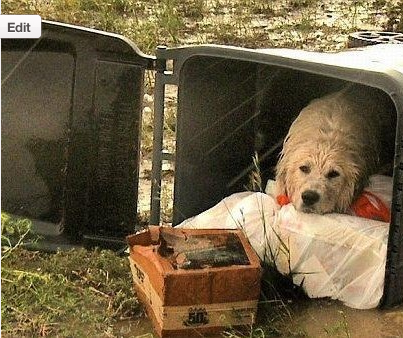
Image via GrandmaLow WANA Commons
Here’s the deal. I get that there are readers who’d be homeless if they bought books full price and new. I happen to be one of them. This is why I have an Audible membership, Kindle Unlimited and I love digital. Also, I never once stated to buy all books new. I said if you liked an author to do him or her a solid and strive to buy something new.
Yes, there is the avid reader who can’t buy every book new. There is also the dead broke reader. I’ve been that reader too. I kid you not, I was so poor when I became a writer I lived off Vienna sausages, generic saltines and ketchup packets from Wendy’s…so I could use that extra cash for the bargain rack at Half Price Books.
*fist bump*
To this day, if I walk in the house and the lights are off? I panic and wonder if my power has been shut off. So yeah. I totally get being that broke.
But that isn’t everyone.
And we live in a world of abundance and if people can afford an iPhone 6 they sure as hell can afford a digital copy of your next book if they loved the used copy. Because if our entire customer base is living in a refrigerator box, then we all just need to go get retail jobs and stop trying to make money.
Look around. Plenty of people live in nice homes and drive nice cars and carry nice handbags. They can shell out $10 for a book so stop being insulting.
Consumers with Conscience
Some of my critics said I was “reader shaming.” Fine. You are welcome to your opinion.
I disagree.
I feel most people don’t know how our industry works and how would they? Most of US are confused how it works since it changes every frigging month. Publishing barely changed for over a 100 years and now it looks almost nothing like it did 6 years ago.
Hell, we work here and half the time have to look up how we’re paid. Oh! But the average consumer! I guess she should just get that through osmosis.
My critics have pointed out that people are going to do what people are going to do.
The War on Piracy didn’t work! The War on Drugs didn’t work! You are an idiot for trying to fight it! Here get my books from THIS piracy site! Here!
Oh-kay…
*backs away*
All right. But those were policies of control. No one is suggesting federal laws making it illegal to go to Half Price Books or make people buy new. I am only asking we as writers educate our consumers because educated consumers change the market all the time.
Sometimes this has to do with the product itself. For instance a BPA-free water bottle is going to be way more expensive than a regular water bottle. But, because of education, consumers learned that paying more for a water bottle was in their favor if they didn’t want to end up with cancer. Education.
Commenters railed on the Passive Voice repost of my blog about paying more just so workers could be paid? What idiot would do that?
In fact my loudest critic in his comment section went for my throat using my own background in jewelry sales.
Did you go to a customer and say, “Here, pay $10,000 for this diamond instead of $6,000 so the miners get paid more money?” Huh? Huh? Did you? DID YOU? How did that work out on the sales floor, Kristen?
Actually, funny he should use that example. I once had a customer who was incensed at our diamond prices. He’d found a much higher quality diamond from another source for a fraction of the cost and demanded to know why we were charging more and ripping him off.
The reason?
When I looked at the “other source.” There was no guarantee that other diamond wasn’t a blood diamond.
Yes, in jewelry we do educate customers they’re paying more in part to ensure their diamonds weren’t mined by slaves and used to fund military warlords.
Education can guide consumers to pay more for a water bottle (product) and a diamond (conscience).
Fair Trade and Social Responsibility
Our consumers have a lot of power. No I don’t feel anyone owes me anything I haven’t earned. Never said that. I said I am tired of people acting like I should be grateful for “exposure” en lieu of being paid and if I say anything I’m a whiny jerk.
I don’t think there’s anything wrong with writers asking for the sale. All people can do is say….no.
When I was in sales, the single largest reason most salespeople failed to make a sale? Never asked for it.
Simple.
But what are people saying to writers?
It is okay to have “exposure”…just don’t ask for the sale. Just be happy being exposed.
Huh? WTH? NO!
What good is a used bookstore for exposure if I then don’t tell people, Hey, if you find a book of mine there and you really love it, please buy my next one NEW? It’s how I get PAID.
OMG! How could you? You broke the cardinal rule of being a writer!
I will starve eating exposure sandwiches, okay? Thank you OATMEAL for this. Check out his comic on it.
And this notion that our books are SO expensive. Really?
I took a look at some really common items I buy all the time. Now, consumers buy these for two reasons. First, superior quality. Secondly, it supports the workers, the industries, the resources and the environment. I feel it’s a huge fallacy to believe all consumers only want more and cheap.
Many of us will do just fine with less and are just fine paying more.
Fair Trade Tea
Hubby’s favorite tea. We work to buy as much as we can organic, non-GMO and fair trade. We might not eat out as much. I cut a lot of coupons. Hubby picks on me that I can make a penny scream. But I spend my money on good quality products and industries I support.
Zhena’s Gypsy Tea promotes social responsibility in its business model.
Fair Trade Coffee
I got this for my mother for her birthday because she is big into organic and loves coffee. BUY HERE. Purchases support coffee farmers of Nicaragua.
THIS I am drinking as I write this because I’m too lazy to brew my own coffee and yes it’s yummy and buy some!
Hubby’s FAVORITE! Fair Trade CHOCOLATE
Not only is the chocolate a far superior quality, we prefer to spend our consumer dollars supporting what we believe in. We don’t want cheap crappy chocolate because we can have more of it. We want THIS and yes it does cost much more but we think it’s worth it. BUY Zola.
We love this brand of chocolate the best (even though it is usually $3.99 per bar on sale). A percentage goes to wildlife and rainforest preservation as an added bonus to being fair trade.

Support chocolate addiction, workers AND critters!
Madecasse is another company we buy from. LOVE their story of what they are doing in Africa to change the economy. Such a wealthy nation should not be so poor. The only reason it is is because of the way business has historically been done.
Sound familiar?
Just because something has always been doesn’t mean it has to always be.
I began buying Fair Trade years ago and as more people are doing it, the choices are expanding and prices are coming down from being ridiculous. But what if people like me hadn’t been willing to pay $7 for a bar of chocolate?
Additionally, what if these companies used the same arguments as all my critics?
People on a limited income won’t be able to afford COFFEE. We can’t possibly do anything differently. That is consumer shaming!
No, if you’re on a limited income, buy the cheap stuff. If and when you can? Splurge and get the Fair Trade stuff and do the coffee workers a solid.
And if enough people buy Fair Trade? Maybe the major players will change their business models. It does happen. And money talks way louder than legislation. Hershey’s just announced its plan to become 100% Fair Trade.
The thing is, no not every person who buys coffee or chocolate or tea or bananas will buy from these companies. But just because everyone won’t buy from them, does it then mean it shouldn’t be an option at all? What if no one ever asked for the sale?
Hey, will you spend $7 to support a cocoa farmer in Madagascar?
*shrugs* Sure. Why not?
And if lunatics like me hadn’t been willing to buy Fair Trade…would Hershey’s have seen the need to change? Maybe. Odds are they wanted to make money and rock on!
Thus, if we can create a market for fair trade chocolate and fair trade coffee—both arguably items that people can live without and that do have far cheaper substitutes—then why is it such a stretch to believe readers can’t and won’t pay more for a book if we take the position of education and social responsibility?
Look, we’ve tried the other way. Toss a few million free books against a wall and hope something sticks. Heck, throw in pirated books for a million more! Social media! EXPOSE ME! EXPOSE ME!
Don’t ask for a sale. That is gauche. You’re an artist.
Yay! More exposure??? Awesome! No, I don’t need money. I do this for just…love.
We do have that option. Keep using it. Knock yourself out.
I’m Scandinavian. We loathe waste. I think it’s genetic. I don’t support companies that waste resources. I prefer to support companies that value resources. I think consumers could change publishing if we let them. If we stopped assuming they didn’t care, that all they wanted was cheap books no matter the consequences.
Guess what? Writers are resources. No matter what my critics say, you matter. You are not interchangeable cogs in a machine. And all the people railing that no one owes you (writers) a living. Guess what? No one owes the bookstores one either.
But maybe together we can make it better for all of us :D . I prefer to believe that Fair Trade Fiction can thrive. Instead of promoting pirate sites, why not promote sites and bookstores that are GOOD to authors?
These days, social responsibility is a bankable asset. If Starbuck’s, Apple, BMW and Google apply this and they’re worth billions, why not publishers/bookstores? Why not at least…try?
Reward bookstores who are Fair Trade Fiction Stores.

Image via Flickr Creative Commons courtesy of Roberto Ventra
Hey, you bought used? Great! Did you love it? Awesome! Could you help out and buy the next one new? Wonderful! *fist bump* Now, you’re supporting the arts and the bookstore.
***Bookstores can’t pay rent off exposure either. I checked.
And if used bookstores wanted to add that extra touch of bohemian cultural to their “cultural center” then add some fair trade chocolate to serve with that fair trade coffee and maybe even promote some fair trade fiction at the checkout counter ;) .
What are your thoughts? Do you feel guilted when someone shows you a rainforest on a chocolate bar or do you go…mmm, not today. I think I will just get the cheap stuff. Do you prefer to buy quality over quantity? Do you like companies that exhibit social responsibility?
Do you think this is a niche bookstores (used and new) could fill? Or publishers? Fair Trade Fiction. I kinda like the ring to that. But, in a world filled with cheap and free books that suck and are a torture to read…what is the consumer’s time worth? Get the vetting of a legacy publisher but with the pay scale of the indies. Just putting it out there. Are you tired of the attitude that we just can’t change anything?
Me? I’m sick of people (writers) being far more willing to promote pirates than other authors. What the hell is wrong with the world when people will write a whole blog trashing me for saying you deserve to be paid while promoting pirate sites? Did I just fall down a rabbit hole?
Anyway. To each his/her own. I believe in you :D
I love hearing from you!
To prove it and show my love, for the month of JANUARY, everyone who leaves a comment I will put your name in a hat. If you comment and link back to my blog on your blog, you get your name in the hat twice. What do you win? The unvarnished truth from yours truly. I will pick a winner once a month and it will be a critique of the first 20 pages of your novel, or your query letter, or your synopsis (5 pages or less).
Y’all are going to have to give me time to tabulate December. Sorry. I am good, but not THAT good. Love you!
Remember to check out the new classes listed at W.A.N.A International. Your friends and family can get you something you need for Christmas. Social Media for Writers, Blogging for Writers, and Branding for Authors.
Also, I have one craft class listed. Your Story in a Sentence—Crafting Your Log-Line. Our stories should be simple enough to tell someone what the book is about in ONE sentence. If we can’t do this, often there is a plot problem. This class is great for teaching you how to be master plotters and the first TEN SIGNUPS get their log-line shredded for free, so you will be agent ready for the coming year.
For those who need help building a platform and keeping it SIMPLE, pick up a copy of my latest social media/branding book Rise of the Machines—Human Authors in a Digital World on AMAZON, iBooks, or Nook.


January 4, 2016
Consumer Power, Author Responsibility & Why Book Reviews MATTER

Too many choices!
We’ve had an eventful week or so with my last couple of unplanned posts. In all fairness, I did expect to get some knickers in a twist (which I did) with my post Pay the Writer. As a quick recap, I love used bookstores. They get a lot more of my money than I like to admit *looks up number to 12 Step Sponsor*
You don’t understand. Half Price Books has books ZEN DOODLES. No frigging idea what those are…just that I need some.
I’m not against “discovering” an author there.
But writers? If we promote used bookstores, make sure to remind readers you don’t get paid that way. Discovery must serve a purpose. Exposure must have the follow-up to be effective.
Because if you don’t ever make any money, you have to go work retail. If you work retail, one day you will be asked one too many stupid questions. When you’re asked one too many stupid questions you snap. When you snap, you lose your job. When you lose your job, you can’t face your spouse. When you can’t face your spouse, you sell drugs for the cartel. When you sell drugs for the cartel, you get involved in a gunfight.
Don’t get involved in a gunfight for the cartel. Encourage readers to buy new if they LIKED it.
Readers, if you find a book you LOVE at that church thrift sale for 50 cents? ROCK ON! If you want MORE books like it? Try to buy new. That’s how capitalism works.
When no one buys new? Well go peruse pictures of Cuba.
By the way, if we buy NEW, the used bookstores make MONEY when we sell those suckers to fund our addiction. So anyone who is foolish enough to think that me encouraging people to buy new books is going to undermine the used book franchise doesn’t remember what used bookstores sell.
The Truth About Samples

Mmmmm…saaaaamples.
Yes, I get that the used book is a sample. Just like at Costco they give out samples of pizza bites. But if no one ever BUYS pizza bites and instead use Pizza Bite Lady as a free buffet?
Pizza bites go away and tofurkey bites take their place and then the terrorists win.
*runs away from vegan friends*
That was the only point to the post that seemed to cause so much offense. Yes Mr. Konrath, I get NO ONE OWES the Pizza Bite Company writer anything, but still nothing wrong with the Pizza Bite Company writer asking for the sale.
When the Pizza Bite Company asks for a sale after we’ve laid waste to the sample table like an Old Testament plague? They’re selling not whining.
Nothing dirty about it when pizza bites sell stuff. Nothing dirty when writers sell stuff either ;) .
Today we’re going to talk about reviews, because I do think that was the big shocker from my last post. I believe most folks have come to mistakenly assume that reviews are kind of this “extra” nicety that isn’t directly relevant to the author beyond ego and that’s patently false especially in the digital age where we writers live and die by algorithms.
Yes, in the digital age, our biggest challenge is discoverability. The defenders of the used bookstore have an excellent point. Obscurity=DEATH. That IS true. But I still say, discoverability means nothing to writers (or any business) without an eventual sale…somewhere.
And for those of you who are on that limited budget who inhale books by the dozen? You have no idea how much power you wield to truly help the writers you love but hopefully you are about to find out.
***Note I said the writers you love. Not ALL writerKIND. Just because I write a book does not entitle me to any review beyond what I EARN.
Why Reviews Are So Essential
Sheer Visibility
We’re all spoiled by Web 2.0 which is a user-generated web that is the offspring of the implosion of the doc.coms in the early 2000s. If you recall the 90s, web content was static. Content was mostly generated by sweaty geeks living in their grandmother’s basement (Okay, I was in a guest room). Anything Internet-related might as well have been Sanskrit for the average person.
Now? Everyone contributes to the web including my sidekick Odin the Ridiculously Handsome Cat.
This is part of what makes the Internet so damn addictive and fun. Everyone contributes. But, with all this content, the web is a BIG place and it’s very dynamic.
Search engines use algorithms to keep everything organized. Algorithms in turn rely on certain favorable behaviors.
I teach this in my book Rise of the Machines—Human Authors in a Digital World. You want a website that gets more traffic? Blog off it! Want a blog that gets more traffic? Do the stuff search engines love. One thing search engines LOVE?
Fresh content.
Would you want a Coke that had been sitting out for days? It’s stagnant, flat…got floaties? Guess what? You and search engines have a lot in common. You like fresh stuff. So do search engines.
This is why regular reviews are very important. If my book hasn’t been reviewed on Amazon since 2013? Algorithms will figure my content is best ignored unless someone actively hunts for that molded cup of forgotten Coca Cola my book.
When a book is reviewed, however, Amazon (or Goodreads or wherever we review because they use the same basic programming) perks to life. Because any site that sells or recommends books wants to help guide customers to good/new content, it’s obviously going to favor the “happening” place.
Think of it this way.
You have out of town guests. Are you going to recommend they go hang out at that dive off the highway where the bartender is about to die from loneliness? Or that hot salsa club downtown with a line out the door?
Visibility & One-Click Shopping
When that review improves the algorithms, the algorithm then starts improving that book’s visibility. It shuffles that book out of the dusty back realms of Nowhereville and gets it in the sightline of a possible buyer. Why this is perhaps more valuable on-line is that Amazon (in particular) understands sales.
Why I’m not a fan of the “exposure” alone is that I come from a background in sales.
There’s this thing called inertia and it’s a bugger to overcome. When I worked in jewelry, if I let a person out of the store without making the sale? Odds we’re 99% that sale was as good as lost. It was better to sell something and make the person have to RETURN it because then inertia worked in MY favor.
Same with used books. Great, customer gets a good book, but most of the time? That’s just not going to translate into a new sale unless an outside factor intervenes.
Outside Factor #1—OMG! TAKE MY MONEY!

Original image via Flickr Creative Commons courtesy of Sodanie Chea
OMG! I SAW ANGELS! I MUST BUY! It happens.
All of us (writers) think we have written this book. Probably not. We keep at it though until we do.
Outside Factor #2—Consumers Voting With Purchases
We vote with consumer dollars all the time and often this is sparked when we are educated that we need to buy differently. Don’t believe me?
I’m highly allergic to gluten and have been all my life. Three years ago most people thought Gluten was a moon orbiting Pluto. Then writers started educating consumers about the food industry. Our food had gotten to where you needed a degree in organic chemistry to know what the hell was in it.
Consumers fought back.
They ignored cheap foods loaded in artificial ingredients and bought non-GMO, organic and gluten-free. As a consequence, prices dropped, selection improved and now General Mills has announced that this year it will be removing artificial ingredients from many of its most popular products.
I can…OMG…eat Cheerios again! *SOBS* Spawn can eat them!

Image vie Cheerios. WE LOVE YOU!!! Even though you are stuck to every piece of furniture I OWN!
http://www.cheerios.com/GlutenFree/
THAT is the power of educating consumers. Readers have the exact same power. Now that people know how writers they love make money, buying habits may be altered due to this factor and inertia overcome.
Hooked on a series from a used book? Perhaps buy the next one new.
Outside Factor #3—Our Nemesis, THE IMPULSE BUY
Most of the time price and seeing a new copy while shopping will spark a sale.
The main reason Amazon IS the new SkyNet is they’ve mastered the one-click impulse buy.
So when that algorithm shuffles your favorite author’s book into the sightline of other potential readers? Odds greatly improve that someone will impulse buy. More sales means that author’s odds of continuing to write more books like the one YOU liked have greatly improved.
How Else Do We Authors Improve?
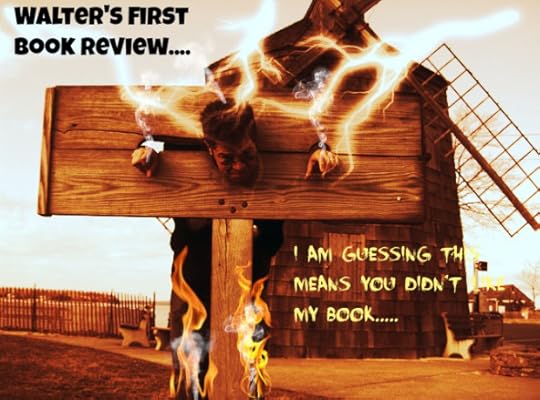
Original image via Flikr Creative Commons, courtesy of Peter Dutton
Believe it or not? Writers are omniscient…only in our fictional worlds. We just can’t know unless you tell us.
For the fiction writers, if ten people say our characters need more depth, then we won’t be wasting time doing more world-building. Feedback makes us better and saves us time.
And *draws a breath* I’m again about to possibly be unpopular.
We writers hear that you (readers) want excellent and professional covers, seamless interior design, professional editing, proofing and formatting…but that costs money. Please don’t rant that no one owes us a living and that you refuse to buy new books but then gripe about crappy covers.
We’re going to have to meet halfway.
Writers. We have a responsibility to put out the very BEST product possible. Refer to my post Five Mistakes Killing Self-Published Writers.
Reviewers don’t owe us any review beyond what we earn and they shouldn’t pay for an inferior product.
The Deadly Silence
I think what’s killing many authors is that readers have come to believe that reviews are not important to us in any way beyond our ego or guiding other consumers (like reviewing a toaster).
Either readers will enjoy a book and never say anything, OR often they will say it in the “wrong” place.
I can’t count how many e-mails I get where a reader just gushes how my book changed their life. How awesome my book was. They loved it!
…then never write a review.
:(
Reviewing Tips

Original image via Flickr Commons courtesy of Mark Coggins
It’s OKAY Not To Be a Pro
We’ve all made the book review WAY more complicated than necessary. Readers, you are not professional book reviewers and do NOT NEED TO BE. If a book kept you up until four in the morning and made you hate life as you slogged through your day job? Give it 4 or 5 stars and just write:
“Book kept me up until 4: 00 a.m. Writer is evil stealing sleep from innocent victims.”
If the book kept you interested and was fun and did its JOB? Reward it. Simple.
I know writers freak you out and you think we’re silently judging your prose. We’re actually too busy wetting ourselves that you liked our book and picking out artisan frames to put your review in….typos and all. They just make you extra adorable.
It’s all good.
Review According to the Book’s FUNCTION
Did the author do his/her job? If yes, great! Why was it great? If not? Why not?
If it’s brain candy then say, “Hey, great brain candy. Fun Saturday afternoon read.” Not all books are supposed to be contenders for the Pulitzer.
Recently I gave a good review to a NF but also left a criticism. The author had mission drift. He never delivered what the book promised (the THESIS). Now, I gave him four stars because I still got a lot out of it, learned a lot and enjoyed the writing…but he didn’t do his job. At least not all the way and he can’t do better unless I give feedback.
And I have the attention span of a meth-addicted ferret so if I finish a book? You get 4 stars just for that alone.

Kristen’s Brain as acted by Spiffy the Hamster
Original image via Dan Derritt Flikr Creative Commons
NEVER Put Your Name on What You Don’t Believe In
This is to offer relief to reviewers. Don’t let writers guilt you and if they insist on guilting you, tell them you’re going to tell me *stern Mama face*.
You beloved reader, don’t owe us anything we don’t earn.
Yes, I want you to support writers with good reviews only because I do think a lot of you have enjoyed books and have never taken time to write a review because you simply didn’t understand how much they mattered. Beyond that?
You’re in the clear.
If you don’t want to write a review? Don’t. You don’t owe us anything.
If you’re a reader and choose to leave a bad review? All I ask is you remember a real breathing human is on the other side of that. A human who sacrificed many hours of free time for the sole purpose of wanting to bring YOU joy.
If we failed, we failed. That’s fair. But, there’s a difference between giving us something we can work with to improve versus prompting us to contemplate suicide.
Writers, don’t guilt others into giving good reviews.
This is a big reason that it’s tough to get reviews. I hate to say it, but I’ve lost many “friendships” because I refused to write a stellar review on a piece that had not earned it. Pouting isn’t professional.

Original image via Melissa Bowersock WANA Commons
If you want to be paid, then you’re a pro but that comes with some hard knocks and sometimes that hard knock is the book sucked. I’m your colleague and will tell you in private.
Readers don’t owe you (or me) that courtesy.
Tips for Shopping
This is mainly for the readers.
Take One Star Reviews With a Grain of Salt
One of the reasons I am not a huge fan of Goodreads is that trolls tend to hang out there and GR has not done a lot protect authors from being abused. So, if you spot a book that suddenly has a weird cluster of one and two-star reviews and there is NO explanation? Could be troll-sign. Trolls also like to hide behind cutesy monikers and avatars (btw sock puppets do too).
Do NOT Be Spooked By All Good Reviews
I also heard a lot of people say they were suspicious if a book got all good reviews, but be careful.
If you see a gathering of all 4 & 5 stars and NO commentary, THEN be wary. That’s a good sign you have a cluster of sock puppets (fake reviews).
But if you’re looking at a book that’s getting mostly 4 and 5 stars and readers are detailing WHY, the book might just be THAT good and the writer earned those high marks. Don’t punish excellence.
For the writers.
DO NOT PAY FOR REVIEWS & DOWN WITH SOCK PUPPETS
Anyone who has a financial interest in reviewing our book already has a conflict of interest as far as I am concerned. Save your money.
One thing that has really burned my @$$ is authors banding together and reviewing each other’s books and that is all well and good if the reviews are genuine reviews. Sadly this has not always been the case. Being a sock puppet doesn’t help anyone.
It will wreck your friend’s brand and your brand because readers will lose confidence and colleagues will lose respect. I refuse to put my name on anything I don’t believe in. If I give a book a five star glowing review? It earned it.
Being a real friend is not easy. But I’d rather someone no longer hang out with me than I serve them up to the wolves on a platter with dipping sauce. In the digital age, we writers live and die by the value of our name.
Don’t let friends guilt you into reviews they haven’t earned. If they’re a real friend and a pro, they’ll get over the hurt and thank you later.
I hope this has helped all of you better understand how reviews work in the digital age and maybe even taken some of the pressure to write The Great American Literary Review off your shoulders. Don’t let other writers give you a guilt trip. As I said, you can tattle on them to me :P . I’ll set them straight.
Does this help? Writers, don’t let anyone make you feel ashamed to ask for a sale. Now if you ask and they say no? Don’t be a pest.
Readers. Feel free to buy books any way and anywhere you want to, but please remember that we do vote with our dollars. That holds true for cars, pizza rolls, gluten-free bread and it holds true for good books.
For the savvy reviewers out there, are there any tips you’d like to add to help us out? Writers, I hope this is something you can reblog and share so your readers know how to help and support you if they so choose.
What are your thoughts? Feelings? Are your eyes wide open? Would you like to add anything?
I love hearing from you!
Remember to check out the new classes listed at W.A.N.A International. Your friends and family can get you something you need for Christmas. Social Media for Writers, Blogging for Writers, and Branding for Authors.
Also, I have one craft class listed. Your Story in a Sentence—Crafting Your Log-Line. Our stories should be simple enough to tell someone what the book is about in ONE sentence. If we can’t do this, often there is a plot problem. This class is great for teaching you how to be master plotters and the first TEN SIGNUPS get their log-line shredded for free, so you will be agent ready for the coming year.
Enough of that…
I love hearing from you!
To prove it and show my love, for the month of DECEMBER, everyone who leaves a comment I will put your name in a hat. If you comment and link back to my blog on your blog, you get your name in the hat twice. What do you win? The unvarnished truth from yours truly. I will pick a winner once a month and it will be a critique of the first 20 pages of your novel, or your query letter, or your synopsis (5 pages or less).
For those who need help building a platform and keeping it SIMPLE, pick up a copy of my latest social media/branding book Rise of the Machines—Human Authors in a Digital World on AMAZON, iBooks, or Nook.


December 31, 2015
The Ugly Truth of Publishing & How BEST to Support Writers

Original Image via Flickr Creative Commons, courtesy of Anurag Agnihotri
Well, I figure I have one more day to drunkenly torch my platform. Sad thing is I don’t drink. I am apparently this stupid when sober :P . Actually I am writing this as a follow up for my rant from the day before yesterday, because knowledge is power.
Writers need this. Your friends and families need this. Readers need this. The more people get how this industry works, the more everyone can start working together for everyone’s benefit.
In my book Rise of the Machines—Human Authors in a Digital World, I go into a LOT more detail and I highly recommend you get a copy if you don’t have one. I spend the first chapters of the book explaining how the various forms of publishing work so you can make an educated decision.
All types of publishing have corresponding strengths and weaknesses and this is a decision only the writer can make. Not all writers are suited for self-publishing. Not all books are good for traditional.
And so on.
But today, dear newbies. I am going to take you on a tour behind the curtain. Also for those who are NOT newbies, feel free to pass this to family in a “Take Your Clueless Friends Who Think You Will Make a Million Dollars as Soon as You Publish To WORK Day.”
Nuts and Bolts of Publishing
Publishing is a very old business that has not updated its business model since the biggest traffic snarl in NYC involved a runaway horse carriage colliding with a drunken fish monger. In the early days of publishing in order to encourage bookstores to carry books, publishers invented what was known as the consignment model.
Publishers would guesstimate how many books would sell, send them to the merchant with the promise that, whatever did NOT sell could be returned at no cost. The merchant only had to pay for books that sold.
Hint: NO OTHER BUSINESS TODAY DOES THIS.
Can you imagine a car manufacturer sending out fleets of new cars that customers could test drive all day long. Run up mileage, spill drinks in the console, but then if they didn’t sell the dealership could say, “Nah, we’re good. Can you send us different models from another designer? We really dig that sleek crossover.”
Because often that is what happens with books. People use bookstores like a freaking library. They go into the adjacent Starbucks with a stack of books, read to their heart’s content and then leave a stack of books for the clerk to put away.
Now the spines are cracked, the pages wrinkled and no one is going to buy that book, but the bookstore isn’t out anything because they can rip the covers off and send them back. Ultimately the writer is the one who takes the hit. Kind of the publisher but really the writer as we are about to see.
Because bookstores want to provide a “browsing experience” they don’t want to rely on the new and far more efficient way of doing business, which is POD (print on demand). They like having stock to show off, which of course they do because they are not really out anything.
How Writers Are Paid

Original Image via Wikimedia Commons
Why I kind of derailed into a rant Tuesday was because there are so many things that get presented as “blessings” for writers when in fact, they are benevolently killing us. They are undermining us and making it harder and harder to make a living wage. We can’t criticize these sacred cows lest we look like jerks.
You ever wonder why people just assume that a published author is rich? That is because this used to be a profession that did rather well. Granted it was easier to be elected to congress than write for a living, but these “good ideas to sell more books” have eroded the Author Middle Class and created a Publishing Third World Economy.
You know what a marker of a third world economy is? My degree is in political economy. In a third world country wealth is concentrated at the top. There is little to NO middle class and the vast majority are working poor or poverty level.
If you peruse my blog from the other day, I mentioned the ways we are paid best (digital and new books). We get a royalty. Anything used? We make no money. But let’s explore a bit further…
Compounded Sales
Back in the days before the mega bookstore, there was a very strong Author Middle Class. This author wasn’t a gazillionaire, but he did really well writing for a living. The reason was that a smaller store like B. Dalton often carried an author’s backlist. If you are old enough to remember browsing these small stores, you might even remember that factor coloring your decision.
How I ended up hooked on any number of SERIES was that the bookstores stocked the series. I didn’t want a standalone book. If I fell in love with an author or characters, I wanted to be able to keep reading.
What this meant was that writers weren’t being paid royalties from ONE book, but many books. Even if the author didn’t write series, if the author had multiple titles, odds were pretty good that the store ordered those, so even with single titles, a browsing reader could be assured they could get more than one title from THAT author.
But there was a downside…for the reader. Books were more expensive. The store was not the size of an aircraft hangar and had no place to buy a frappucino and good luck being able to buy a figurine of a chubby cat reading Shakespeare.
The MegaStore is GREAT for READERS…and Writers of COURSE

Good luck getting good placement BABY WRITER.
So then Borders and B&N came on the scene. I still remember how they were lauded. How they were going to improve literacy because books would be so much more affordable! They were “cultural centers” and “bookish hubs”. Writers will get so much more “exposure.” Does any of that sound familiar? Refer to that @$$hat article I was ranting about.
But there was a problem. There is no free lunch. Those “deep discounts” came at a cost…to the writers. In order to discount the books the way they do, the mega stores don’t stock like the old indie bookstores unless an author is a household name guaranteed to sell.
Megastores are in the business of moving high volume. That is how they give the consumer the discount. Books, for the first time in history, had a far shorter shelf life than ever before.
Instead of books remaining in the store and giving the writer time to cultivate a fan base, the covers were ripped off and the books pulped.
As a consequence? The mid-list author (Author Middle Class) was nearly wiped out. Authors who’d made a very good living previously had to return to the regular workforce (I.e. teaching) because they no longer could live off their writing income.
I had a friend of mine who won a Nebula Award in science fiction. She went from making a regular income off ELEVEN titles, to making income off ONE title at a time.
Even though she was a respected and award-winning author, she had to give up writing full time (until Amazon).
***This was all until Amazon, by the way. Many of these authors who were driven to poverty actually now make more money than they ever did traditionally published and they no longer have to be pillaged by megastores. Which is why I get pissy when people act like Amazon is the devil and bookstores are so awesome.
Megastores make money with volume and offering the newest shiny. But the problem is that books often are like fine wine. I said wine, not whine ;). They need time to mature.
But the problem was that the very literary ecosystem that helped launch unknown books like The Divine Secrets of the Ya Ya Sisterhood into legendary status…was destroyed. Traded for beads frappucinos. Borders and Barnes & Noble obliterated the small bookstore and took with it the earning ability of many writers.
The mega-bestsellers did VERY well. Ergo my reference to Publishing Third World. Wealth was redistributed and concentrated at the top and the middle class was eradicated.
Book Placement
If you do not have an on-line platform, then Browsing Roulette is about the best you can hope for. But those spots in a bookstore are all negotiated in a writer’s contract. Those front slots on a table are premium real estate.
Same with displays. Ironically, though, the authors with the most selling power often get the best displays (remember the volume thing). But, George R.R. Martin is probably going to sell books. The writers who need that placement the most are the least likely to get it.
This isn’t personal. It’s business.
If I came out with a novel, I am going to sell a heck of a lot less than George R.R. Martin. Well, at least five or six copies less :P .
In seriousness, though it makes sense to display your heavy hitters. Problem is then that the newer writer no one knows then better hope her last name falls at the fortuitous eye-level because she will be spine-out on a shelf.
And if the time runs out and no sale? Off with that cover and the book is pulped.
Advances
Before I became a writer I bought books everywhere. Because it was not my profession I guess I really just never put any thought into how that writer was paid. If I bought a book at a used bookstore and it was new, I assumed it was overstock. I had no idea what a remainder was (more on that in a moment).
I’d also watched movies and heard this term “advance” tossed around as if it meant money rained from the sky. In fact, as a new writer, I dreamed of all kinds of ways to spend my million dollar advance.
Advances are not free money. They are essentially a payday loan. It is money loaned to the author against the money eventually earned in royalties.
So if an author is given a $20,000 advance, he is not paid another dime until that book earns over $20,000.
Herein lies the pickle.
If an author doesn’t “earn out” the advance, odds are she will not be given another book deal. So, if you get that $20,000 and the book makes $19,700? No more deals. That’s why BIG advances seem like a good thing, but can actually wreck a career. It’s far easier to earn out a $20,000 advance than a $90,000 one.
Writers don’t have to pay back the advance, but if it doesn’t “earn out” it means the writer is not a wise investment for the publisher so the odds are not good for the author getting another book deal. Depending on the author or the book, they might get another deal. But with newer authors? Probably not. And first-time authors? Forget about an advance. Not happening unless your name is Kardashian.
This was a really big deal before the digital age because traditional publishing WAS the only game in town. So if an author didn’t make her quota? Game over.
These days, advances are pretty much a thing of the past. Any money most writers will make are going to come from US buying books from them.
Print Runs
One can tell how much confidence a publisher has in a book (author) by the print run. Low print runs mean the publisher is being conservative to hedge losses…but low print runs mean the writer doesn’t make as much. A standard print run for a new unknown author is 10,000 books. But traditional tends to limit authors to one book a year so even if an author makes $2 per book, that is $20,000 before taxes.
Yes, J.K. Rowling is a billionaire but she is not the norm.
***Btw, all of this is VERY unscientific and very broad strokes to give y’all the gist.
This isn’t BAD for the new writer because it is way easier to sell out that 10,000 and then she will get a bigger run the next book and the next as her brand grows (if she doesn’t starve in the meantime).
However, higher print runs? We are in the same deal with advances. If you don’t sell out your print run, the remaining copies are remaindered.
There are ways writers can buy a portion of their remainders to sell by hand and they can get a far lower royalty off remaindered copies that are then sold through wholesale outlets and used bookstores.
Usually if you see a new book at a used bookstore and it looks like this (pic below)? It is a remaindered copy. That’s why yes, I get the Doctrine of First Sale and that used bookstores are not doing anything “illegal.” But don’t assume that a writer was paid a full royalty the first go. That isn’t always the case.
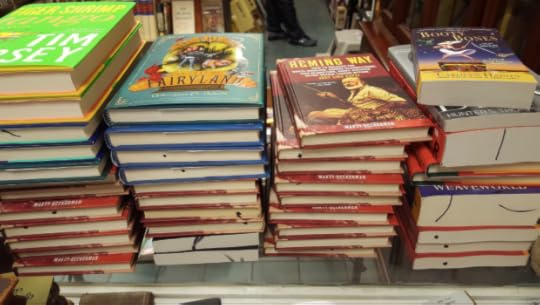
Image courtesy of Angela Quarles
Yes, this is a great fabulous discount for the reader, but when I see this? My heart feels heavy and sad for the author. That is why in my last post I said, YES feel free to buy used but if you can, please see if you can buy new from the author. The reason is that those sales can make the difference in that author earning out the advance, selling out a print run and getting their next book contract.
Because used bookstores do not favor self-published and indie authors. Most of their stock will be traditionally published authors so you (readers) supporting who you like with a new sale becomes far more important to that writer’s future and career.
Royalties
Traditionally published authors are often paid yearly. Sometimes quarterly. That is negotiated. It is why you have an agent. So whatever the author makes, Vinnie the Fish Agent makes sure the publisher pays, then takes 15% (pretty standard). Then the writer is subjected to self-employment taxes, but with all this “exposure” from the megastore the writer might qualify for food stamps.
So writers are paid like farmers. Let your family know that your down payment on the yacht might be delayed.
Reviews
I get that a lot of people buy used because they are on a budget. Been there so *fist bump*. You can still support writers in meaningful ways.
Even if you buy new, there is another way you can support writers you love. Write a REVIEW. A GOOD ONE.
As a writer I have a personal policy. If I can’t say something good, I shut up. Mainly because I AM far more picky about story being a writer and an editor but also this business is brutal. If we are not supporting each other? Who will? Because our families don’t get us. Our significant others might. Our kids think we are nuts. So I only leave glowing reviews. But that is me. Writers shouldn’t eat their young.
For READERS. Reviews are more important now than ever before, especially for the indie and self-published author. The reason is that with the change in the publishing paradigm, the slush pile (unfortunately) has been dumped into the reader’s lap. There are a lot of bad books out there. But even then, that really isn’t all that big of a problem.
Want to know the bigger problem?
There are a lot of good books out there.
With the Internet and social media and the explosion of books there is SO MUCH content. This means consumers are overwhelmed with choices. Reviews help writers sell books because if readers see a book with no reviews or five reviews versus a similar title with thirty reviews? Who will they choose? Additionally writers gain access to promotional tools like Bookbub, but can ONLY do this with a minimum number of reviews.
Instead of sending me an e-mail about how much my book changed your life? Put it on Amazon and change MINE!
Readers are essential to our success beyond just the sale. If you love our books, your promotion means a thousand times more than any ad I could pay for. Ads and marketing don’t sell books. Never did and never will. Only thing that sells books is word of mouth.
Beloved reader? You would be shocked how much regular people will pay attention to you. That review is worth your weight in gold to me for a number of reasons. Humans don’t like being first. So unless a couple of you are brave and review? My book can sit with NO reviews and it is then unlikely to sell.
Think about a shelf with ONE item. It freaks us out. There is only ONE. Is it poison? O_o
Secondly, when you review us, Amazon favors our books in the algorithms meaning more people SEE our book. More people SEE it, odds are I will sell more copies. In the on-line world YOU have the power to get US that awesome front of the store book placement. The more reviews the better the algorithm. Better algorithm, more views. More views, more sales, more sales—>we make a best-seller LIST!
You can also use your social media because it means more than ours.
Tweet a picture of our book. Put it on Facebook. People in your network ARE noticing. Peer review and approval is paramount in the digital age. And don’t support your favorite author on Goodreads as a first choice (AMAZON reviews are better). The only people hanging out on Goodreads for the most part are other writers and book trolls.
Support us on your regular Facebook page or Instagram or Twitter. Because when you post a great new book you LOVED your regular friends see that. When they get stranded in an Urgent Care or an airport? What will they remember? THAT BOOK. They won’t be on Goodreads. Trust me.
So there is your year’s end peek behind the curtain. Sorry (again) it was so long but this is meant as a reference/guide. Readers, we love you. Honest. It is why we are so stupid to work for free so much. This is a labor of love in many ways. Writers, I hope this helps you understand your profession better and maybe even “get” why I was so ticked off the other day.
Happy New Year! I love all of you very much. So NO, your writer friend is NOT YET a millionaire, but you can help MAKE HER ONE :D.
I love hearing from you!
What are your thoughts? Feelings? Are your eyes wide open? Would you like to add anything?
I love hearing from you!
Make SURE you sign up for my upcoming classes! This is part of how I fund my plans for global domination. Purchase a class! Buy a book! OR ignore all that follows but DAMN sure buy all your books NEW or I WILL FIND YOU O_o ….
Remember to check out the new classes listed at W.A.N.A International. Your friends and family can get you something you need for Christmas. Social Media for Writers, Blogging for Writers, and Branding for Authors.
Also, I have one craft class listed. Your Story in a Sentence—Crafting Your Log-Line. Our stories should be simple enough to tell someone what the book is about in ONE sentence. If we can’t do this, often there is a plot problem. This class is great for teaching you how to be master plotters and the first TEN SIGNUPS get their log-line shredded for free, so you will be agent ready for the coming year.
Enough of that…
I love hearing from you!
To prove it and show my love, for the month of DECEMBER, everyone who leaves a comment I will put your name in a hat. If you comment and link back to my blog on your blog, you get your name in the hat twice. What do you win? The unvarnished truth from yours truly. I will pick a winner once a month and it will be a critique of the first 20 pages of your novel, or your query letter, or your synopsis (5 pages or less).
For those who need help building a platform and keeping it SIMPLE, pick up a copy of my latest social media/branding book Rise of the Machines—Human Authors in a Digital World on AMAZON, iBooks, or Nook.


December 29, 2015
PAY THE WRITER—Pirates, Used Bookstores & Why Writers Need to Stand Up for What’s Right

Image courtesy of Wikimedia Commons
All righty. I’d vowed to take off for the holidays but *laughs hysterically* sure. Like THAT was going to happen. No, seriously, I’m working on resting more. I’m also working on learning to shut up. Clearly those two goals are getting re-slated for 2016 resolutions because the whole “Inside words stay inside…”
Not working out for me. So why not leave 2015 with a bang? Haters gonna hate.
To quote the great Tywin Lannister, Lions do not concern themselves with the opinions of sheep.
Today I’m going to say something that could quite possibly be grossly unpopular, but whatever. It’s for your own good. I’m feeding y’all broccoli to offset all that fudge and alcohol you’ve consumed during the holidays.
There’s a trend that just makes me see red and I’m calling it out today because if we do not address this 500 pound used paper elephant in the room, then it’s going to be really, really hard for you guys to reach your dreams, which I assume is to work as a full-time PAID writer.
For those of you who do NOT want to be PAID to write? The following does not apply. If you are content to work a full-time regular job AND slave over a manuscript as a second job and your ONLY reward is simply nice reviews, compliments, hugs, cuddles, and the joy your stories might create in the hearts of others?
I am NOT talking to you.
If, however, you have ever complained about “an evil day job” that you really wish you could leave because it is sucking out your soul and your very will to LIVE day by day and you would rather be lobotomized than return to Satan’s Cube Farm after the holidays?
Then probably want to pay attention.
Readers ARE Excused
Readers are different. Readers are excused from what I am about to discuss. Readers are NOT writers. Yes, I understand that many writers began as readers. But there is a difference. We have progressed past the point of consuming an intellectual/creative property and now we are producing this intellectual/creative property.
We now have something at stake.
So why am I in a tiff?
Yesterday, I was on Facebook and it would have been one thing to see one writer post this link. But I saw like TEN writers post this link and they were excited…as if this Washington Post article were announcing a GOOD thing for our profession.
In an Age of Amazon, Used Bookstores Making an Unlikely Comeback.
Here’s the deal. I don’t care about bookstores. I care about writers. In fact, readers should care about writers more than bookstores because no writers? Well no real point in bookstores now is there?
Want to support the arts? Pay artists. Want to support books? Pay writers. It is simple. Before we go any further, some education…
How Are Writers Paid?
This seems a bit silly, but we all need to learn this when we decide to do this writing thing as a job.
First of all, I am not against doing stuff for free. But the thing is? Writers already do all kinds of stuff for free. Every friend, colleague and family member expects us to be an on-call resume-writing, essay writing and editorial service.
Most of the time? We oblige.
Often, we blog for free (though if you do it the way I teach you actually DO get a return on that investment). Once we are published? We do interviews and guest posts for…FREE.
So please. Do not expect to ALSO get our books for free. We are frankly DONE with free.
How can a writer get PAID?
So happy you asked.
Digital pays writers the best. Then print copies. NEW ones. Buy on-line or in a bookstore or at an event in person. We writers get a royalty. Depending on the contract, writers can even get paid if a book is checked out of a library. That library PAID for the book and the writer was then, in turn, paid a royalty.
Upon so many times checked out? The writer is then PAID again for a new “copy” of the book.
Want to support a writer in the new year? BUY BOOKS.
Writers are NOT PAID for the purchase of used copies. So while I LOVE used bookstores I want to make a point here. Writers MAKE NO MONEY.
As a professional, I treat my fellow writers-at-arms the way I want to be treated. I do not buy used books as a first choice. If I DO happen to buy a used book, I make sure to purchase at least a digital copy so that writer is PAID for his or her hard work.
But that article? That article in The Washington Post was beyond the pale. I was livid. Stealing from artists is not cool. It is not cultural, not avant garde.
To be clear, I do not mind used bookstores. What I mind is the attitude that somehow digital is bad and Amazon is bad whereas “paper” and used bookstores are “cultural” and therefore GOOD and preferable for writers.
And unfortunately, I witness a lot of this among writers. I “get” that many of you love old books and browsing dusty old shelves and discovering old treasures. For out of print books? No argument from me. Rock on. But…
We have to be really, really careful that as artists we are not perpetuating the very behavior that pisses us off.
We like getting paid for our work. We work really really hard and expect (rightfully) that we should be rewarded for doing so.
Surgeons work hard and they expect to get paid. No one gripes when the sales clerk gets paid. Heck, no one gripes when the UPS driver gets paid or the barista who makes the triple-shot espresso peppermint soy cappuccino with half foam and vanilla sprinkles in a special red holiday cup and does not commit MURDER gets paid.
Oh, but it is artsy and bohemian to rip writers off because old books are cool?
No. And again, let’s keep the debate clear here because I can already hear the blogs now, “Kristen Lamb hates bookstores!” No. Pay attention.
I love old books. Have stacks of them. Want to buy old copies of Jane Eyre? Be my guest. I doubt Charlotte Bronte is counting on that Amazon royalty check to pay to upgrade her Scrivner or unscrew Windows 10 or, I dunno, eat.
Want to support civilization? Buy old books. Want to support a writer and his/her family and career? Buy new ones or e-books.
Encourage and educate readers to do the same. Because here is the deal. If we writers go around cheering how AWESOME used bookstores are? How the heck are readers going to know they are benevolently gutting our careers?
They (readers) see us posting the links. They ASSUME we are benefitting. They have no idea how we get paid. Why not direct them to places where we might make money?
I will parse this article in a moment but first? Let’s look at some of the common reasons people defend the used bookstore.
Used Bookstores Allow Readers To Discover New Authors for a Smaller Investment
Okay, so does digital. Difference is? The writer actually gets paid from an e-book.
Know who else claims they are doing writers a favor by letting readers “discover” new authors on the cheap?
Pirates.
Writers are the first to grab digital pitchforks when their work is pirated because they don’t get paid. GASP! The horror!
Some site offering their books and they don’t get a royalty. Burn them! Take down the site! They are stealing! Oh, but when a used bookstore does the exact same thing?
It’s okay. Because, well, it’s paper. It’s “culture.”
*head explodes*
Why? That pirate used bookstore gave you “exposure.” Shouldn’t you be happy that a reader could…”discover” you. That pirate used bookstore is doing you a favor really.
Just to be clear, piracy is a whole other blog and not the topic of today and I KNOW used bookstores are not actually stealing. I am only using this to point out how Janus-faced we writers can be about the “Ooh! Exposure!” crap.
The Author Can Get “Exposure”
Will Wheaton took Huffington Post to task on this. Again, what I am seeing is a Digital Versus Paper Bias. Huffington is a Pulitzer-winning news outlet that when it sold last year, sold for over $300 million dollars. Why can’t it then PAY writers who submit? (Hint: It can. Just doesn’t want to because it doesn’t have to).
Oh but you get “exposure.”
Granted, I bit. I allowed Huffington to repost a couple of my blogs that had already gone viral. I was flattered to be asked to write for them and then wrote a couple of pieces just to be able to add “Huffington” to my resume of accomplishments.
But, I’m ultimately a businesswoman. I had to ask the HARD question. What were they doing FOR ME?
Truth was? Not all that much. It wasn’t worth being troll food, because, when you post for Huffington, you have no control over comments and you have to be nice to people whose sole purpose in life is to crap in your Cheerios.
Here? I am benevolent dictator and do not have to be nice.
If you want to comment here and write something like this:
Kristen, you are a talentless hack and a hopeless amateur. Every time you speak a kitten dies from the sheer stupidity you spew into the ozone layer.
I have this wonderful thing called “edit function.” I can delete. OR, I can change your comment to read.
OMG, Kristen. You are supreme writer of all that is genius and I want to be JUST LIKE YOU one day. I have even started dressing JUST LIKE you, which is weird because I am a dude!
Probably shouldn’t have told y’all that. Oh well. Sally forth…
Yes, here I blog seemingly for “free.” But I trust me, I don’t. Because this is MY blog. I own the content. I make money off my hard work. Which, by the way, is as it should be.
By the way. YOU work hard and guess what? I believe YOU should be paid, too. Wow! Imagine that.
Heresy!
And writers seem to have no problem getting very indignant that so many blogs and digital outlets expect them to work for free.
Oh, but sell my paper books and make all the profit? Go ahead! That’s “culture.”
And before anyone gets too ticked at me, yes, Amazon sells used books, but the difference is that there is ALSO an active promotion of that author’s OTHER books that are NOT used where the writer CAN be paid. On Amazon, it is also extremely easy for a browsing reader to discover and purchase other titles by that particular author.
So maybe I do buy a used book because it is out of print, but then I CAN buy something IN print so the author can…I dunno. EAT.
Back to This Article…
I think why this article aggravated me so much (aside from writers promoting the heck out of it) was it was treated as it it was some “grand thing” for the arts. Let’s take a look, shall we? From the article…
Quote #1
Sierra, like other book lovers, has read articles about slowing e-book sales and watched as independent bookstores such as Politics and Prose thrive, catering to readers who value bookish places as cultural hubs and still think the best reading device is paper.
First of all, Sierra, e-book sales are NOT slowing. That is a patently FALSE claim that does not account for the explosion of indie and self-publishing. Yes, e-book sales have slowed for traditional publishers and print has picked up for traditional publishers, but namely because when publishers insist on charging the same for a PAPER book as an e-book? Readers will just go ahead and buy paper because $14.99 is just simply ridiculous for a digital book.
But even if that were the case, if you really do love books? Be a sweetheart and try supporting those who write them. Thank you.
Quote #2
And it’s a business with good economics. Used bookstores can beat Amazon and other online booksellers on price, offering shoppers both a browsing experience and a money-saving one. Also, profit margins on used books are better than new ones.
That part I outlined in red was my favorite.
It is amazing how much profit margins increase when you don’t actually have to pay the person who worked long and hard and sacrificed to create the product you are profiting from. The sky is the limit!
Then there is THIS gem.
Quote #3
“It’s (the used bookstore) like having a museum or a theater. It’s a cultural center.” ~Gottwals
Except that museums are supported by private donations, government funding, grants and patrons PAYING A FEE to walk around and look at the collections. And theaters? Same thing. Try going to Phantom for free, Mr. Gottwals. Good luck getting a seat NOT in the nosebleed section for under $250.
Quote #4
“I can find these books online, but I don’t want to…and if you don’t support the little guys, they won’t be around anymore.” (Customer)
Exactly, dear customer. If you don’t support the little guys they won’t be around. They will have to give up writing and work retail and then saw open their wrists with a spork while listening to Bjork and I hope you are happy #writerkiller .
We Must Take Ourselves Seriously
Yes, I admit it. I’m ranting today. Why? Because if writers don’t take themselves seriously, why would anyone else? When I protested the article on social media, writers argued with me. They acted as if a book is the same thing as a house or a car.
NO.
A car is a tangible property, not intellectual property.
I have no problems with people reselling books to used bookstores. I do it. I buy books from used bookstores. BUT, I also actively go out of my way to make sure writers are PAID.
Because here’s the thing. We cannot cheer that used bookstores are “socking it to Amazon” and at the same time bemoan we aren’t making any money.
We cannot collectively cheer the “return of paper books” when they are in the used form and then also cry that we can’t leave the day job because we are not being paid for our work.
We can’t promote articles like these, directing readers to outlets where we don’t make royalties and then stand mystified that no one takes our career seriously. Why are we promoting businesses who brag about not paying us? Again *head explodes*
We cannot say, “Well I am just happy when a reader discovers my story” if we are not in fact simply okay with just that. If cuddles and compliments are enough? Then good. But do not let me hear any complaint. I do not want to hear ONE word about how much that day job sucks.
And if we ARE going to promote used bookstores (which IS fine) then by GOD educate readers and ask for the sale. Let them know that you will not be paid off that sale and to please also buy a full-price version if they like your book.
Educate your readers because the bookstores aren’t going to. Clearly they do not care if writers get paid because they make money either way. In fact bookstores make MORE money if writers don’t.
Working for free while others are sole profiteers is NOT okay. It is exploitation.
No one else works for free. You shouldn’t either.
You don’t fill up gas and expect it for free. You don’t expect cashiers to work at the grocery store for free. You don’t expect people who cut your hair to do it for free. You value others and what they contribute to your life. And maybe I’m a jerk because all I am asking…all I am imploring is that you give the same honor to yourself.
Because in the new year? It won’t matter one whit what resolution you make. WE are the first step. WE have to draw the line and say that what we do has value. And we have to call people out when they devalue what we do.
And when bookstores go around bragging to The Washington Post about how much profit they make because the margins are so much better than selling NEW books and expect me the author to bite on some Book-Buying-Trickle-Down-Economics wrapped up with an “It’s Culture” ribbon?
NO!
 Yes, I love paper books too. I buy them NEW.
Yes, I love paper books too. I buy them NEW.
Honor yourself. Honor your fellow authors. I love all of you. I believe in you and hope you see that I DO support bookstores, but dammit…it is about %$#ing time they returned the favor and supported those who are bleeding to line their pockets.
You matter. Your dreams matter. Your work matters.
What are your thoughts? Have I finally gone too far? She is MAD! Mad it tell you! I would blame it on alcohol but I haven’t started drinking…yet. I needed to drink after that article. What are your thoughts? Do writers need to stand up more? We already do way too much for free. We needed to with the expansion of Web 2.0 But now that the Internet and social media has hit a critical mass, do you think we need to step back and start saying NO more? What are your thoughts? Were you unaware how writers were paid?
Do you think use bookstores need to do more to support the actual WRITERS instead of this cop out of “exposure”? Maybe take some of those “high profits” and invest in apps or tablets with links to NEW works by the authors? Maybe let authors come in and talk and promote NEW works so they can continue to WRITE? What are your thoughts? Are you dressing just like me? :D
By the way, I LOVE this short film. There IS STRONG adult language so you are warned. But THIS!!!!!!
I love hearing from you!
Make SURE you sign up for my upcoming classes! This is part of how I fund my plans for global domination. Purchase a class! Buy a book! OR ignore all that follows but DAMN sure buy all your books NEW or I WILL FIND YOU O_o ….
Remember to check out the new classes listed at W.A.N.A International. Your friends and family can get you something you need for Christmas. Social Media for Writers, Blogging for Writers, and Branding for Authors.
Also, I have one craft class listed. Your Story in a Sentence—Crafting Your Log-Line. Our stories should be simple enough to tell someone what the book is about in ONE sentence. If we can’t do this, often there is a plot problem. This class is great for teaching you how to be master plotters and the first TEN SIGNUPS get their log-line shredded for free, so you will be agent ready for the coming year.
Enough of that…
I love hearing from you!
To prove it and show my love, for the month of DECEMBER, everyone who leaves a comment I will put your name in a hat. If you comment and link back to my blog on your blog, you get your name in the hat twice. What do you win? The unvarnished truth from yours truly. I will pick a winner once a month and it will be a critique of the first 20 pages of your novel, or your query letter, or your synopsis (5 pages or less).
For those who need help building a platform and keeping it SIMPLE, pick up a copy of my latest social media/branding book Rise of the Machines—Human Authors in a Digital World on AMAZON, iBooks, or Nook.


December 22, 2015
The Writer’s Journey—Staying the Course From Newbie to Master
Some of you may or may not know that I practice Brazilian Jiu Jitsu. BJJ is unique in that there are only FOUR colored belts (blue, purple, brown, black) and new practitioners are a white belt for roughly a year an a half before they can test for blue. I just earned my blue belt last Thursday. This is no small feat, seeing as how I am the ONLY female in a dojo of males much larger and most far younger than I am.
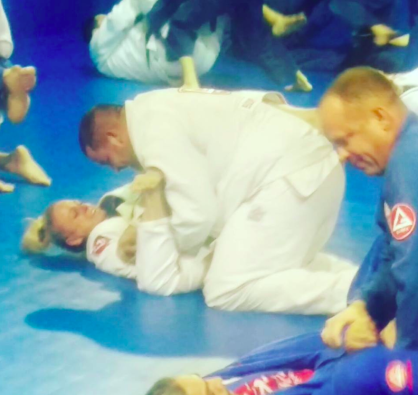
My first fight as a blue and SERIOUSLY? I get TYLER?
The parallels for BJJ and writing are profound though. In the beginning it really doesn’t seem all that difficult. Yeah, you just grab that leg, pull that knee, sure! Got it. Then? Once you get on the mats?
*head explodes*
The more you learn, the more you come to know how much you don’t know.
One would think I’d feel more skilled and capable with each class, but I don’t. Quite the opposite. As I peel back the layers and nuance? All I can see is how far I have to go.
Back to writing.
The mark of a pro is they make whatever we want to do look easy. From running a business to playing guitar to wicked cool Kung Fu moves, masters rarely seem to even break a sweat. Same with authors. With the pros? The story flows, pulls us in, and appears seamless and effortless.
As we take off for the holidays to rest and relax and ponder over what we’ve achieved in 2015, what we hope to still achieve in 2016, I want to close out the year with this elucidation regarding the process so that you have no surprises….
Many of us decided to become writers because we grew up loving books. Because good storytellers are masters of what they do, we can easily fall into a misguided notion that “writing is easy.” Granted there are a rare few exceptions, but most of us will go through three acts (stages) in this career if we stick it through.
Act One—The Neophyte
This is when we are brand new. We’ve never read a craft book and the words flow. We never run out of words to put on a page because we are like a kid banging away on a piano having fun and making up “music.” We aren’t held back or hindered by any structure or rules and we have amazing energy and passion.

Woodleywonderworks Flikr Creative Commons
But then we go to our first critique and hear words like “POV” and “narrative structure.” We learn that maybe we don’t know as much as we think we do and that we need to do some training. We also finally understand why so many famous authors drank…a lot.
Act Two—The Apprentice
The Apprentice Phase comes next. This is where we might read craft books, take classes, go to conferences and listen to lectures. During the early parts of this phase, books likely will no longer be fun. Neither will movies. In fact, most of your family will likely ban you from “Movie Night.” Everything now becomes part of our training. We no longer look at stories the same way.
The apprentice phase is tough, and for many of us, it takes the all the fun out of writing. The apprentice phase is our Act II. It’s the looooongest, but filled with the most growth and change. It’s the span of suck before the breakthrough.
I’ve studied other forms of martial arts, but I am relatively new to Brazilian Jiu-Jitsu. Right now I am in the span of SUUUUUCK. When I started as a neophyte, I “seemed” to do better because I just muscled my way around on the ground and being naturally strong? It worked…against an equally green opponent.
But it also wore me out and gave me more than a fair share of injuries. I had to learn technique. Technique looks awesome when Professor does it. It looks easy on theYouTube videos.
When I do it? Eh…not pretty and NOT easy.
But I am improving. As a beginning white belt, the upper belts just instantly laid waste to me. They had me in a choke or an arm bar in less than a minute. I made all kinds of stupid and reckless mistakes. I worked too hard. I used up too much energy. I used muscle power instead of brain power.
I had to learn to relax and breathe, which is counterintuitive when a 260 pound guy is smashing you. I had to instead, learn to use my small size, my speed, and my crazy flexibility. I had to learn to THINK. Now? I’m not winning my rounds, but I rarely ever lose and I fight some pretty big opponents who far outclass me. And YES, it is frustrating. There are times I’ve had to walk off the mat so they can’t see me cry. But, I have to give myself permission to be learning.
Same in writing. This gig is tough. There is a good damn reason not everyone can do what WE DO.
Many new writers will shy away from craft books because they fear “rules” will ruin their creativity. Truth is? They will totally ruin your creativity, but only for a little while ;) . It isn’t permanent.
Eventually we realize that rules were made to be broken. BUT, the difference between the artist and the hack is that the artist knows the rules and thus HOW to break them and WHY and WHEN. We start to see rules as tools.
In fact, one thing we do in Brazilian Jiu Jitsu is we grapple blindfolded. The trick is to not get fixated visually, but to be able to flex and move in response to the opponent. THAT is how sensitive you want to become. Same in writing. We want to become so immersed that we can do this stuff blindfolded. We instinctively feel what needs to happen where without having to say “Oh, this is a scene, and this is a sequel.”
As we move through The Apprentice Phase and we train ourselves to execute all these moves together—POV, structure, conflict, tension, setting, description, dialogue, plot arc, character arc—it eventually becomes easier. In fact, a good sign we are at the latter part of the apprentice phase is when the rules become so ingrained we rarely think about them.
We just fight write.
We’ve read so much fiction, watched (and studied) so many movies, read so many craft books, heard so many lectures, and practiced so much writing that all the “rules” are now becoming instinct and, by feel, we are starting to know where and how to bend, break or ignore them.
Like anything, there is NO substitute for DOING. Watching Holly Holmes videos is a good idea for understanding ground-fighting, but it can’t take the place of mat time. Reading, taking classes, studying cannot replace writing crap until we don’t write crap.
At the end of the apprentice phase, writing is now starting to become fun again, much like it was in the beginning when we were banging away on the piano keyboard. Like the fighter who instinctively knows to arm bar an opponent without conscious thought, we now find more and more of the “right” words and timing without bursting brain cells.
The trick is sticking it through the apprentice phase long enough to engrain the fundamentals into the subconscious.
Master
This is where we all want to be. In fact, we all want this on Day One, but sadly, I believe this Day One Master is reserved for only a handful of literary savants. Mastery is when we return to that childlike beginning. We write with abandon and joy and, since the elements of fiction are now part of our DNA, our literary marrow, what we produce isn’t the off-key clanging of a neophyte, it’s actually a real story worth reading. Granted, it isn’t all kittens and rainbows. Masters have a lot of pressure to be perpetual geniuses.

Portrait by Yosuf Karsh via Wikimedia Creative Commons
I believe most of us, if we stick to this long enough, will always be vacillating between the Advanced Apprentice Phase and the Mastery Phase. If we choose to try a totally new genre, we might even be back to Neophyte (though this will pass more quickly than the first time).
We have to to keep growing. The best writers still pick up craft books, refresh themselves in certain areas, read other authors they enjoy and admire to see if they can grow in some new area. Masters seek to always add new and fresh elements to the fiction.
The key to doing well in this business is to:
1. Embrace the Day of Small Beginnings—Starting is often the hardest part. Enjoy being new. Enjoy that feeling because you will reconnect with it later because you recognize it.
2. Understand We All Have an Apprentice Phase—We will all be Early, Intermediate, then Advanced Apprentices. How quickly we move through these will be dictated by dedication, hard work and, to a degree, natural talent.
3. No One Begins as a Master and Few Remain Permanent Masters—Every NYTBSA was once a newbie, too. When we understand this career has a process, it’s easier to lighten up and give ourselves permission to be imperfect, to not know everything. Many writers get discouraged and give up too soon because they don’t understand there is a process, and they believe they should be “Masters” right away.
Hey, I did.
We need to give ourselves permission to grow. If we love and respect our craft, we will always be learning, so we will continue to dip back into “Apprentice” to refine our art even further.
Does this make you feel better to know this career has a process? Are you in the Act II span of suck and getting weary? It is okay, REALLY! It’s natural. What are you doing to remain focused? Which part has you the most discouraged? Write with the abandon of the Neophyte then edit with the eyes of an Advanced Apprentice or Master ;) .
I love hearing from you!
Just as a warning, I may blog between now and the new year. I am working on this “resting” thing, but then I do miss y’all. Alex also has some more amazing posts but I am saving those for the new year. They are too good to miss. Make SURE you sign up for my upcoming classes!
Remember to check out the new classes listed at W.A.N.A International. Your friends and family can get you something you need for Christmas. Social Media for Writers, Blogging for Writers, and Branding for Authors.
Also, I have one craft class listed. Your Story in a Sentence—Crafting Your Log-Line. Our stories should be simple enough to tell someone what the book is about in ONE sentence. If we can’t do this, often there is a plot problem. This class is great for teaching you how to be master plotters and the first TEN SIGNUPS get their log-line shredded for free, so you will be agent ready for the coming year.
Enough of that…
I love hearing from you!
To prove it and show my love, for the month of DECEMBER, everyone who leaves a comment I will put your name in a hat. If you comment and link back to my blog on your blog, you get your name in the hat twice. What do you win? The unvarnished truth from yours truly. I will pick a winner once a month and it will be a critique of the first 20 pages of your novel, or your query letter, or your synopsis (5 pages or less).
For those who need help building a platform and keeping it SIMPLE, pick up a copy of my latest social media/branding book Rise of the Machines—Human Authors in a Digital World on AMAZON, iBooks, or Nook.


December 16, 2015
Holidays Got You Down? CHOKE THEM OUT with Yule-Jitsu
We writers are a crazy lot. If you look at my author pic with the viking helmet? I KID YOU NOT, Hubby was home sick. Walks out and I am dressed like a viking. Doesn’t miss a beat. Where’s the NyQuil? The week before, my mom stopped by and I was dressed as Alice in Wonderland for a vlog. Again? Nothing.
They are used to my insanity.
So wrestling holiday decorations? Nothing on the scale of Kristen’s Weirdness.
For those who don’t know, I also do the blog for my Jiu Jitsu dojo. Yes, I am a blogger but what am I going to blog about? I am a WHITE BELT.
10 Ways to NOT PEE YOUR Pants When Grappling a Black Belt
5 Ways to Work the Fetal Position
How to Tap Out Like a Boss
Needless to say, even though tomorrow I test for my blue belt? I only have a year and a half on the mats, so my lack of experience really limits my topics. So, I decided to share my passion for Jiu Jitsu with the world the same way I do with writing. By making people laugh. Anyway, I put a lot of work into this post, so I figured I’d get more mileage out of it and share it here as well because I want you guys laugh and to be safe as well ;) .
I’ve lived a remarkable life and now I can add, “Inventing a new form of martial arts” to my resume.
I bring you.
Yule-Jitsu
Gracie-Barra Mansfield, Texas is all about serving the greater community and we believe Jiu Jitsu is for everyone. But, we also believe in innovation, which is why we are the ONLY dojo in the WORLD to offer martial arts to keep you safe specifically during the holiday season with—Yule-Jitsu.
Yes, you read correctly. Yule-Jitsu. Because let’s face it…the holidays are trying to kill you so why not CHOKE THEM OUT?
Maybe you think I am nuts. You’d be correct. Maybe you think I simply want attention and blog content. Also correct. But here’s the thing.
Millions of people are killed by their own Christmas decorations EVERY DAY, but more so during Christmas. In fact, holiday decorations are the LEADING cause of death among all people of all ages in EVERY country according to an article I just published on Wikipedia.
But how much of this tragedy could be prevented with just a little bit of preparation? How many other forms of martial arts have been blind to this vacuum in combatives training?
NO MORE.
We at Gracie Mansfield could not allow this kind of reckless irresponsibility to continue, so today I bring you the foundational moves of YULE-Jitsu.
The Fir Mount Escape
The unthinkable happens and you are attacked by your own TREE. This escape is named The Fir Mount escape namely because I really dig clever word play. This escape will work on more than just fir trees and is effective on any evergreen real or artificial.
Maybe you are hauling in that “natural tree” and trip over the cat. Maybe you have too much egg nog and lose your footing. Maybe your home is invaded by a burglar with a record and since he is on parole? He cannot have a GUN and so he uses a TREE.
You are trapped. WHAT…DO…YOU…DO?
Remain calm.
The key is not to panic. If you feel wetness? It is probably not blood. If it’s a natural tree, likely you just spilled water down your leg…or you’ve wet your own pants. But the thing is? Stay calm.
The force of being crushed by your own tree probably will not kill you, but it will give you really awkward carpet burn that could lead to serious couples counseling.
Breathe. Create distance. Work your hands between you and the offending spruce to get the weight off your chest.
You should now be free from your tree and can now change pants.
Holiday Light Choke Escape
Holiday lights. We love them. Strands of lighted beauty? Or ELECTRIFIED AESTHETICALLY PLEASING DEATH ROPES? All perspective. Again, DO NOT UNDERESTIMATE YOUR ENEMY. That is a foundational teaching of Yule-Jitsu.
Some see eight tiny reindeer. In Yule-Jitsu you learn to see the STAMPEDING HERD OF INFLATED NYLON ‘MADE IN CHINA’ DEATH.
To demonstrate this escape, I’ve had my two assistants help me with an active attack scenario.
Let’s say you are forced to decorate a tree with young people. A teen who is supposed to be helping but is listening to music videos on YouTube. His little sister is enamored with decorations and thus not paying attention.
Meaning when trouble comes sniffing you better be a BEAR WOLF OF YULE-JITSU…because you are on your own.
In a vain attempt to keep the lights from twisting into one giant mangle only good for throwing in the trash, you get the bright idea to “loop” the Electrified Aesthetically Pleasing Death Rope (E.A.P.D.R.) around your neck. Then something goes horribly wrong…
Trouble. First, assess if there really IS trouble. Can you simply slip free of the E.A.P.D.R.?
DEFINITELY trouble. Again, remain calm.
Before creating Yule-Jitsu my first instinct was to simply gnaw through the E.A.P.D.R. Let’s just say that is a really bad plan. Using a knife? Equally bad plan. Throw water on it to lubricate and wriggle free?
No, though I thought that would work too.
WHICH IS WHY WE NEED YULE-JITSU…
Work free from the choke.
E.A.P.D.R.s are a genuine threat. No one is required to register them, get a permit for them and I am proof any idiot can be in possession of these so please. Practice your Yule-Jitsu.
Moving on to the final move in Yule-Jitsu. This move is helpful throughout the year but VERY useful during this time of year to take on our greatest foe…Commission Only Sales Clerk.
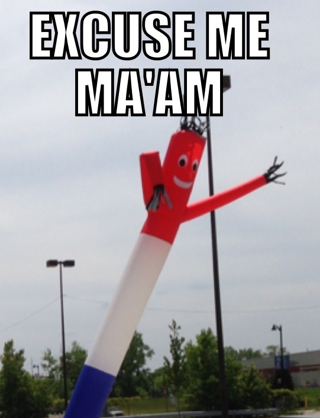
AHHHHHHH!
The Hair Iron Throw (or H.I.T.)
Ladies, you know what it’s like. You are shopping for gifts and if your hair is curly, some salesperson at a kiosk with a flatiron is after you. If your hair is straight? The assault will come in the form of a curling tool.
Some fools see a mall? I see a poor tactical position with no cover. YULE-JITSU TRAINING.
Though this move was developed to take out an enemy with a mad hot hair tool, it is also effective against clerks wielding perfume, cheaper cell phone plans, artificial hair pieces and wrinkle creams.
Again, my assistant is helping me demonstrate the Hair Iron Throw (H.I.T.).
Notice my assistant sees the coming threat and is immediately in her ready stance.
Trap the attacker’s hand. This keeps your hair straight (or curly) and also keeps the hot iron contained so you don’t get burned as you further execute the H.I.T.
Rotate the arm. Again, this creates more space to keep your hair the freaking way you STYLED IT WHEN YOU LEFT.
Also it will throw the attacker off balance and this permits a much smaller person to take out a far larger aggressor. Children who study Yule-Jitsu can also help maintain a parent or guardian’s current hair style and keep any adult from purchasing some overpriced “Ionic Tool” and why do we need IONS in our hair anyway?
Follow through. Notice as she rotates, I go over. Maintain control and finish. Keep control of the hair tool during the H.I.T. Finish the move as needed.
Stay safe! Know your Yule-Jitsu. Merry Christma-Hana-Kwanza-kah from Gracie Barra Mansfield!
What are your thoughts about Yule-Jitsu? Are you shocked there has been such a glaring hole in self-defense? Are you even MORE SHOCKED that people like me are allowed access to computers? Do we need other forms of holiday inspired martial arts? Come on, y’all are writers. Impress me!
By the way, we DO have the best (or at least weirdest) job in the world. I never thought part of my job would involve actually wrestling with a fake Christmas tree.
Thank GOD I won. Could have been embarrassing.
We love hearing from you! Come join us for a free month of Brazilian Jiu Jitsu and we will throw in some Yule-Jitsu for FREE!
Remember to check out the new classes listed at W.A.N.A International. Your friends and family can get you something you need for Christmas. Social Media for Writers, Blogging for Writers, and Branding for Authors.
Also, I have one craft class listed. Your Story in a Sentence—Crafting Your Log-Line. Our stories should be simple enough to tell someone what the book is about in ONE sentence. If we can’t do this, often there is a plot problem. This class is great for teaching you how to be master plotters and the first TEN SIGNUPS get their log-line shredded for free, so you will be agent ready for the coming year.
Enough of that…
I love hearing from you!
To prove it and show my love, for the month of DECEMBER, everyone who leaves a comment I will put your name in a hat. If you comment and link back to my blog on your blog, you get your name in the hat twice. What do you win? The unvarnished truth from yours truly. I will pick a winner once a month and it will be a critique of the first 20 pages of your novel, or your query letter, or your synopsis (5 pages or less).
For those who need help building a platform and keeping it SIMPLE, pick up a copy of my latest social media/branding book Rise of the Machines—Human Authors in a Digital World on AMAZON, iBooks, or Nook.


December 14, 2015
Writing Kick@$$ Action Scenes–Hook! Cross! T.K.O.
It might remind you of the movie Groundhog Day: Yes, it’s true, Alex Limberg is here with us once again. Like all that glitter that fell off your Christmas decorations? Can’t get rid of him. To mix things up a bit, Alex is assisting me through the holiday season. Also, his free ebook “44 Key Questions” to test your story will help you with creating intriguing stories. This time he puts on his action hat and shares a clever recipe to write your readers’ socks off with action scenes. Let’s get right to it.
***
BOOM! CRASH! BANG!
It’s Batman chasing Superman through James Bond’s porcelain collection. Broken glass, bones and promises everywhere.
But here’s the problem: It reads like an academic lecture about 17th century German philosophy.
If the style can’t convey your action in an edgy and dramatic way, even the most wicked scene structure won’t help. You are a writer, thus you need to get under your readers’ skin with your words.
When you hear “action scene,” what comes to your mind first?
It’s probably a movie and not a book, because movies are the ideal medium for action: Graphic, supported by audio and all kinds of (special) effects, easily creating pace with cuts, and the audience can save themselves the effort of active reading.
So if your story contains a fast-paced action scene, you want it to play out in your reader’s head just like a movie: High speed, quick cuts, graphic images, lots of tension.
Here are some techniques to give your reader a fast, exciting, high-octane experience:
1. Motion vs. Emotion
Great action scenes consist of two elements that interlock like precisely designed gear wheels.
Motion is the tickling surface that provides the kick, like spices on a dish. It’s the breathtaking real-time stuff; punches are thrown, knives are pulled, jumps are dared. We love it, because something is happening, and it’s happening explosively fast.
In contrast, emotion is the core of the matter, the fuel for the audience’s feelings. It’s the real underlying reason why action grabs us, its psychological motivation. Just seeing anybody knocking a chair over anybody’s head might hold your interest for a second, but knowing Joe knocked a chair over Desmond’s head because Desmond tried to scam Joe’s dad?
That makes you really feel the action in your gut and root for the characters.
You should tap into both, motion and emotion; one to make your scene quick and tingling and the other one to get your audience all caught up in the scene.
2. Create Pace with Motion vs. Emotion
The trick is to make motion and emotion blend in well with each other. When they take turns, each of them has a very special rhythm to it.
While motion should happen really fast to keep your reader at the edge of her seat, emotion will take longer to dive into.
It’s great they are so different, because a change of rhythm is helpful for your story anyways. Variation keeps things interesting.
So speed up your scene with a physical description of the fight, the blood, the explosions and whatever fun you have going on there. Then, when you describe emotions, use that part to slow the scene down.
When you slow down by getting into your character’s head and describing his thoughts and feelings, you provide the “emotional fuel” for the scene, while at the same time varying its rhythm – two birds killed with one stone.
Every scene has its very specific pace, and fast-fast-fast gets old um…fast? Fast-slow-fast is much more effective, because any characteristic stands out more strongly next to a completely contrary characteristic. A dark spot always looks much darker when placed next to a light spot.
For example:
“Amy reached out for the gun on the table. She knew terrible things would happen if Richard could lay his hand on it first. Her mind couldn’t help but paint graphic images of blood and despair. (slow) Then her hand was on the gun, his hand on hers, a stinging pain as she gasped for air, the bone of her wrist cracking, the gun flying through the air. (fast) ‘It has landed in the corner,’ she could observe herself thinking. ‘It hurts so bad, but I have to be the first one there.’ (slow again)”
Slow-fast-slow, as simple as that.
Don’t take this rule too strictly though. You can write your scene as you need to – just be aware of the rhythm you create!
3. Amp Up Speed with Language
But how exactly do you make your language and descriptions “quick”?
Glad you asked.
A very effective way is to shorten your clauses and words as much as possible: Use brief and simple phrases, short words, a spurt of syllables. The quicker the reader can skim through this, the quicker it will play in his mind.
Also, use as few periods as possible. Periods always make the reader experience “mini-stops,” thus slowing down the reading experience. Just a staccato burst of short, graphic verbs and nouns is the most effective way to pick up speed. Compare these two passages:
“He cut forward with his knife and saw its blade flashing in the bright sunlight. As he heard the guy screaming, he realized that he had cut through his shirt. Now he found himself staring into his face, which was showing its bare teeth. The guy attacked again.”
OR
“His knife cut forward, blade flashing in the sunlight, the guy screamed, his shirt cut open, with bared teeth he attacked again.”
Would you say the second one feels much more dynamic?
4. Use a Sudden Detail for Slow Motion
Here’s another way to wind down pace, this time while heightening suspense at the same time: Employ a sudden, graphic detail that symbolizes the tension in the air.
Pick a detail that demonstrates the risk, the power, the fear. For example, think of a pearl of sweat on an eyelid that does (or doesn’t even) blink, or of a reflection in the blade of a knife. It can be as simple as describing the shiny, hard, red round of a boxing glove.
This is a very cinematic technique, and what you are writing is essentially a close-up. You are zooming in, freezing time for a second and concentrating on the thought or feeling the detail evokes in us.
If you use this trick very sparsely, it can be extremely effective. At the same time, you delay what will happen and therefore you heighten the suspense.
5. Use Action Words
Certain types of words are more powerful and dynamic than others and will create a more intense “action-experience.”
Think about it: It’s pretty obvious that verbs of movement are more energetic. Push, shove, run, grab, duck, blow, scratch, kick, paddle suggest a lot more action than stand, sit, think, look, be, wait. So when you want to speed up your scene, use as many words of active movement as possible. Use static verbs when you want to slow down.
When it comes to nouns, things you can touch are very effective. Any palpable word suggests way more action than an abstract, theoretical one. After all, which phrase lets you feel the action more:
“Vincent was afraid of the huge threat to his life.”
OR
“Vincent was afraid the giant bumper would squash his head like a pea.”
Take your pick…
So there you have some essential tricks to make your story more action-packed than a Schwarzenegger movie crossed with a Bruce Willis flick. Go apply them!

Alex Limberg is blogging on ‘Ride the Pen’ to help you boost your fiction writing. His blog dissects famous authors (works, not bodies). Create intriguing action (and other) scenes with his free ebook “44 Key Questions” to test your story or check out his creative writing exercises. Shakespeare is jealous. Alex has worked as a copywriter and lived in Vienna, Los Angeles, Madrid and Hamburg.
Got it, Alex.
Ok, now we want to hear from you: What does a scene need to do to punch you in the gut? What’s your favorite way of grabbing your readers with action? What do you think about huge, neon-colored speech bubbles that say “Peng!” and “Pow!”? Did you ever arrange a vase fight with your grandma’s most precious crystal and alabaster items? What, in your opinion, actually does work? Definitely share your thoughts with us in the comments!
Remember that comments for guests get double love from me for my contest!
I love hearing from you!
To prove it and show my love, for the month of DECEMBER, everyone who leaves a comment I will put your name in a hat. If you comment and link back to my blog on your blog, you get your name in the hat twice. What do you win? The unvarnished truth from yours truly. I will pick a winner once a month and it will be a critique of the first 20 pages of your novel.


December 9, 2015
Do You Have TRUE GRIT? If Not, 7 Ways To Get It
In my tenure in this profession it is sad how many truly talented writers I’ve seen who never made it. The reason? Talent is useless without mental toughness. It takes true grit to make it in this business.
Too many writers are simply not going to make it because they don’t have the sticking power. And while this is an easy observation to make, I am here to do more than point out the obvious. I’m here to give some practical ways to improve psychological toughness, get better at being disciplined, and eat goals and deadlines for breakfast (they have ZERO calories, btw).
Relax and enjoy the holidays. Refueling is vital. Bookmark this. Let it soak in and then be ready to act come January 1st. These tips work for anything you want to accomplish, btw.
So…
Seven Tips for True Grit
One—Set Goals
No really and don’t roll your eyes at me :P . Set them. I know you hear this all the time but it’s true. Write them down and make them real. How can you map a course if you don’t know were you are going?
When I was in sales we had a saying, Fail to plan. Plan to fail.
If you have a goal to eventually replace that day job with being a full-time writer? Write it down and then plan your escape. Studies have shown that we’re far more likely to reach goals once we have written them down and that isn’t shocking.
To write them down we have to name them, claim them and define them. We take them out of the “nebulous gray.” It is far easier to reach for concrete benchmarks than existentialism.
Forget Realistic—Realistic is For Wimps
Most of us underestimate what we can accomplish. When you write your goal, rewrite it just a little bigger. What’s the worse that can happen? You accomplish more than you thought you could?
Years ago I did this. I wrote down, In 2011 I am going to get an agent. Then I crossed it out and wrote In 2011 I am going to sign with one of the best agents in NYC.
See, we never know what is going to happen or what chain of events might open what door. In early 2011, I wrote a little book called Are You There, Blog? It’s Me Writer. I was still an unknown and this was also during the days that most people were unconvinced social media was fundamental shift in global civilization we all NOW know it to be.
When I wrote the book, I needed blurbs, so I made up a Hail Mary List. These were authors who I loved, who were SO BIG I doubted my e-mail would ever even get through.
On that Hail Mary List was NYTBSA James Rollins. Not only did I get through, he’d actually read my first book We Are Not Alone—The Writer’s Guide to Social Media and was MY FAN *falls over dead*. He asked if it would be okay of he sent my book to HIS agent…who later that year signed me (who happened to be one of THE biggest agents in NYC). I not only got a blurb and a friend, I got an agent.
What if I’d limited my goal?
Visualize Process NOT Fantasy
A critical mistake I made when I first decided to become a writer was I spent far too much time “visualizing” the success. In my head I dreamed of sales, wealth, book tours and being able to travel the world to research and people lined out the door to meet me and seeing stacks of displays of my books.
Nothing per se wrong with that but just that is fantasy and can be unhealthy.
To reach any big dream, we must fall in love with the process.
I am up almost every morning at 4:15 a.m. That seriously sucked in the beginning. I had to learn to fall in love with it. Blogging? SUCKED for the first 2 years. It was so hard week after week, month after month writing thousands of words to entertain CheapXanaxANDYoungCoeds.com.
But I knew I was honing my skills. I was learning to write leaner, meaner, faster and cleaner. I was training myself to eat deadlines for breakfast. I was training out my perfectionism that held onto things instead of shipping. I was opening myself to public criticism, gaining fans, feedback and thicker skin.

Original Image courtesy of HeikoHartsuijker Flickr Creative Commons
Through a lot of really humbling lessons, I had to fall in love with all of it, not just the fantasy of what “one day” might be. Writers’ groups are all filled with people who never have pages to read, who never finish what they start. They don’t blog, don’t build a platform, but all have dreams that HBO will be replacing Game of Thrones with their series.
Nothing wrong with that goal, btw. Just don’t leave it at that. Do the WORK.
To the Pain—Set Accountability
In the New Year we all have goals. Maybe you want to finish the novel by a certain day or query by a certain day or publish by a certain day. I love pleasure but pain is good for the soul. Put some stakes on it. Go purchase something you really want. Preferably something a close friend (ideally a mean friend) also wants.
Maybe it is a $50 gift card. Maybe a new gaming system, spa package, or 90 minute massage. Whatever.
Put it in the pot and then, if you make your goal by the date it’s yours, if not? It goes to your accountability partner. Yes, rewards and treats are all fabulous but they are a tad too easy.
Often we are far more motivated when it will cost us something. The more it costs us, the more motivated we are to accomplish said goal.
So if a loved one gives you a fat gift card for Christmas, maybe throw that in the Goal Pot and take a gamble for a greater ROI. Use that $100 Amazon card for cool stuff you want to reward yourself with, but also as fuel to finish all revisions by February 15th ;) .
Ditch Negative People, Whiners & Complainers

Image via Flikr Creative Commons, courtesy of Memekode.
Seriously. You wouldn’t let someone bring their dog in your house and let it crap on your floor, would you? Yes, if someone brings a pet over and once in a while there is an oops? OKAY. But that is very different than someone bringing over their dog and using your living room as a kennel floor.
So why let people crap non-stop in your head? Sorry for the gross image but that’s what that is. Whining and complaining do nothing but increase stress levels which shrinks the size of the hippocampus leading to us being progressively more stupid.
Yes, science has proven that hanging out with whiners makes us stupid.
Everyone has a bad day and that isn’t what I’m talking about. Give them 60 seconds and then enough. Start talking about solutions. People who are chronically negative or addicted to whining? Bye.
I’ve learned to determine the ASKHOLES in my life and get rid of them. You know what an askhole is? That is a person who is always in a crisis, who always needs advice and after they have derailed your life and gotten your advice? Does whatever the hell stupid thing they are going to do anyway…often leading to the next crisis that you WARNED them would happen.
Turn them loose.
Surround Yourself With Accountability & Excellence
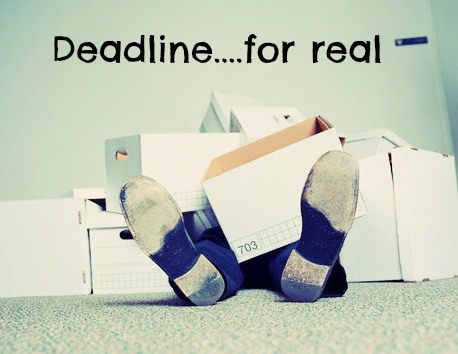
Original image via Flickr Creative Commons, courtesy of Stoere Schrijfster.
We are who we hang around. Character is contagious. When I was new as a writer I didn’t understand how important this was. I thought I could fight the inertia of mediocrity with sheer willpower. I also thought that if I was part of a group of people who said they wanted to be writers, well then they wanted to be writers. Right?
No.
Actions speak louder than words.
Writers write. Not all critique groups and writing groups are good for you. If you want to join a writing group, look to how many people in the group are published, multi-published, awarded, writing full-time, blogging, etc. If it’s just a bunch of people who meet and have coffee and talk about writing? Your time is better spent at home writing. Hanging out with that garbage is like hanging around radioactive material and thinking you are fine.
NO.
Negativity and mediocrity are invisible particles that punch your will and your dreams full of tiny holes until they collapse and die. Yes, you can try to ward it off and buffer from it but the best course of action? Stop growing strawberries writing dreams at Chernobyl crappy writing groups.
One of the things I’ve worked hard to do is to make myself available on W.A.N.A.Tribe. Back in November during Nanowrimo I introduced writing sprints in the Main Room IM field.
I rallied everyone at 8:45 a.m. CST and we did as many as 5 sprints. 30 minutes per sprint. Write as much as you could. Report back the numbers. Then we took a break and came back at 3:30 p.m. CST and did more sprints.
Everyone who participated finished Nano. I finished in 16 days WITH the flu while blogging.
Once Nano ended, I changed the plan. We now still meet every morning at 8:45 a.m. CST and we do what I call Blackouts. 40 minutes to do as much work as you can then report back to the group what you accomplished.
Writers now get to see MY operational tempo, since I’m almost always leading the team. We do as many as five Blackouts before lunchtime. Then, we rally back at 3:30 after I get Spawn for more Blackouts. I generally do about 3 more.
Writers get to see what I accomplish in that 40 minute block. What is my word count? How much did I get edited? How many Blackout sessions did it take to get my blog written and posted?
This doesn’t mean people need to copy me, but I tell you, it helped me TREMENDOUSLY when social media peeled back the curtain and I started seeing how authors I admired worked and got so much accomplished.
Also, this current system offers accountability and makes all of us push harder. There is a level of healthy competition and since we are a TEAM, it is far harder for me to say, “Eh, I think I will take today off.”
Up Your Operational Tempo
Believe it or not, I am not the strongest member of my team, merely the best looking #ITSACURSE. There are writers on our Blackout Team who blow ME away. Always look to surround yourself with people stronger than yourself and don’t buy your own excuses.
Get comfortable being uncomfortable.
You may not be able to do this on your own. You may lack the discipline so come over to W.A.N.A.Tribe and join out Blackouts. Sometimes, you need guidance from a pro. Take one of the classes listed below. Or, feel free to e-mail me at kristen at wana intl dot com. I do consulting for social media, blogging and branding, but I also can help with your books. Instead of wasting another year revising or rewriting, a small investment in time with me might save you months or years of work.
This job is never easy, but it is always AWESOME.
What are your thoughts? Do you see some suggestions here that might improve your odds of reaching your goals? Do you try to go it alone too much? Do you give negative people too much permission to crap in your life? Do you think you might go a tad too easy on yourself? I hope to see y’all over at W.A.N.A. Tribe! No excuses this year that you have no system of support :P .
Remember to check out the new classes listed at W.A.N.A International. Your friends and family can get you something you need for Christmas. Social Media for Writers, Blogging for Writers, and Branding for Authors.
Also, I have one craft class listed. Your Story in a Sentence—Crafting Your Log-Line. Our stories should be simple enough to tell someone what the book is about in ONE sentence. If we can’t do this, often there is a plot problem. This class is great for teaching you how to be master plotters and the first TEN SIGNUPS get their log-line shredded for free, so you will be agent ready for the coming year.
Enough of that…
I love hearing from you!
To prove it and show my love, for the month of DECEMBER, everyone who leaves a comment I will put your name in a hat. If you comment and link back to my blog on your blog, you get your name in the hat twice. What do you win? The unvarnished truth from yours truly. I will pick a winner once a month and it will be a critique of the first 20 pages of your novel, or your query letter, or your synopsis (5 pages or less).
For those who need help building a platform and keeping it SIMPLE, pick up a copy of my latest social media/branding book Rise of the Machines—Human Authors in a Digital World on AMAZON, iBooks, or Nook.


December 7, 2015
Charles Dickens—Using Symbol, Theme & Allegory to Create Enduring Stories
Why are there certain stories we just can’t get enough of? Why do some stories fade away while others become staples for every generation? Charles Dickens’ A Christmas Carol has been made into all kinds of movies, plays, cartoons, musicals and there are countless variations of Dickens’ original story: A grumpy old miser who is transformed by the power of love.
Today we are going to explore the many brilliant layers of a very simple and timeless tale and maybe even extract some lessons to make our own writing even better.
One of my all-time favorite movies for the holidays is The Muppets Christmas Carol. I believe I’ve seen this movie a few hundred thousand times. I’ve worn out three VHS tapes and at least three DVDs. I play the movie over and over, mainly because, well, duh, MUPPETS! I drive my husband nuts playing this movie over and over…and over.
I’m worse than a three-year-old.
Muppets aside, I also can’t get enough of the music. I love the story of A Christmas Carol no matter how many times I see it, no matter how many renditions, and I am certainly not alone. Charles Dickens’ story of a redeemed miser is a staple for holiday celebrations around the world and across the generations.
This story is virtually synonymous with “Christmas,” but why is it such a powerful story? Why has it spoken so deeply to so many? Why is it a story that never grows old? Today, I want to talk about a couple of the elements that speak to me, because they rest at the heart of great writing.
A Little Background
A Christmas Carol is a beautiful story, but I find it’s true beauty when it’s explained in the Christian context that inspired it. A couple years ago, Toddler Spawn was watching Bubble Guppies and they tried (dismally) to tell the same story inserting “holiday” so as not to offend anyone, I presume.
Yet, the story fell flat.
The PC had ruined the beauty of this tale and made it more of a lesson about embracing shallow commercialism once a year than a story of love’s power to redeem the irredeemable. Thus, this post will use scriptural and religious references to explain why I believe this story is so moving and timeless.
Charles Dickens was a Christian and his beliefs are wound all through the story, thus this post is only to explore in light of that reality. For instance, if we were parsing apart The Golden Compass we’d be approaching from a vastly different ontological angle. Namely, Pullman is an atheist and thus his fiction is also an extension of his values.
Back to A Christmas Carol…
Instead of Dickens preaching his beliefs, he created the tale of Ebenezer Scrooge and then through theme, symbols, motifs and allegory drove home very powerful lessons.
The Power of Names
Naming characters can be vital. Great writers use the power of parsimony. Each element should serve as many purposes as possible. A name is more than a name. It has the power to be a story within a story.
I recall the moment I was first introduced to what would become my favorite hymn, Come Thou Fount of Many Blessings. One verse stood out:
Here I raise my Ebenezer
Here by Thy great help I’ve come
And I hope, by Thy good pleasure
Safely to arrive at home.
Ebenezer? Raise an Ebenezer? I needed to know more. Ebenezer is actually אבן העזר, Even Ha’Ezer, which literally means stone of help or monument to God’s glory and is referenced in the book of Samuel.
Thus, when Dickens chose a name for his protagonist, he chose the perfect name for the redeemed sinner. What is a better testament to a God of grace, than the hardened heart melted by the power of love? The current climate of political correctness aside, A Christmas Carol is most definitively a Christian story and the theme is reminiscent of Proverbs 25:22:
If your enemy is hungry, give him bread to eat
and if he is thirsty give him water to drink
for you will heap burning coals on his head
and the Lord will reward you.
Very often this verse is misunderstood. “Yeah! BURN ‘EM! THAT’LL TEACH THEM TO MESS WITH ME! COALS! BURN BABY BUUUURN!” Yet, if one looks to the ancient Hebrew, the heaping burning coals is literally the holy fire of LOVE that melts the hardened heart so it can be remade (think of melting a weapon of war to remake it into something of beauty or a tool for healing or farming).
The path to redemption is love, for only love holds the power to redeem those who have committed grave wrongdoings. Only love can repair what’s been broken and “remake” it into something entirely new.
The Christian story is a story of love, of redemption, of second chances and not because one has earned it or deserved it.
Scrooge is a dreadful man, yet as the story unfolds, not only does Scrooge’s heart begin to melt as he’s faced with the truth of who he is, but our hearts melt toward Scrooge as we travel through the past, present and future and see what has created such a embittered, cruel person. We empathize and start to have compassion and love the unlovely.
Scrooge has done nothing to earn redemption, but his redemption is precisely why we cheer at the end.
The spectral visits serve to show Scrooge the truth, which again is reminiscent of scripture; and then you will know the truth and it is the truth that will set you free (John 8:32). Scrooge cannot change what he cannot see and it is the three ghosts who come to reveal what he’s failed to see on his own.
Repentance is not the mumbled and counterfeit “Sorry.” Rather, it is finally seeing the truth of who we are and what wrong we’ve done. It’s a decision to make things right and turn away from wrong.
By the end of the story, Ebenezer is authentically repentant. He’s a changed person determined to share the love and grace that was freely given to him when he didn’t deserve it.
Again, what a wonderful testament to God’s love. What a lovely “Ebenezer.”
Jacob Marley is another symbolic name. Jacob Marley is the name of Scrooge’s old business partner, and it is he who intervenes to try and redeem his old friend before Ebenezer is sentenced to share Marley’s fate. The name “Jacob” actually means “thief and liar.”
In the Bible, Jacob stole his brother Esau’s blessing, then manipulated, lied, stole and connived until it came back to bite him multiple times (Jacob later wrestled with an angel until he could be given a new name, Israel and he’d become the father of a great people). What better name to give someone sentenced to roam as a specter for eternity carrying the weight of his ill deeds than a name that literally means thief and liar?
The Power of Symbol
When the ghost of Jacob Marley visits Scrooge:
The chain he drew about his waist was clasped about his middle. It was long and wound about him like a tail; and it was made (for Scrooge observed it closely) of cash-boxes, keys, padlocks, ledgers, deeds, and heavy purses wrought in steel…
Why cash-boxes? Why deeds? Why purses?
In life Jacob was a money-lender. He was ruthless in his dealings and never forgave a debt. Yet, Matthew 6:12 (part of The Lord’s Prayer) reads: Forgive us our debts as we have also forgiven our debtors.
Jacob forged his chains in life. He refused to show mercy, compassion, or kindness. He was ruthless and legalistic, thus he has sealed his fate. God has promised to forgive us the same way we forgive others, which is why the scripture pleads for grace, compassion and mercy. Also, forgiveness of debts is the heart of what Christmas is about, for unto us a child is born.
Christians believe God sent His only begotten son (God in the form of Man) to pay a debt we cannot hope to pay. God loves us as His children, and our actions have left us hopelessly out off our depth, incapable of paying our debts.
Yet, Love cancels the debt.
Christ’s last words on the cross, “It is finished” literally translate “Paid in FULL.” Jacob turned away from the grace freely offered, so now he wanders, burden by the debts he cannot pay.
Jacob now finds opportunity to warn Scrooge of the chains he is now forging with his actions (and inaction), chains that are longer and heavier than even his. The only way for Scrooge to free himself is to learn to value himself and his fellow human beings.
Smaller Truths Reveal Larger Truths
Dickens makes it a point to show us that Scrooge is a miser. Scrooge shows no mercy, has no warmth, shares none of his wealth…with anyone, including himself. Scrooge is a very wealthy man, yet he wears old clothes, lights no coals for warmth because coal costs money. His home is threadbare and his food measly and meager.
The full story of redemption is that Scrooge not only sees his fellow man differently—worthy of compassion, love and generosity—but in changing how he views his fellow man, his view of himself changes (and heals) as well. The three spirits not only heal Scrooge’s relationship with his Maker, but with himself and others. Scrooge, for the first time, becomes part of the human experience, no longer content to be “solitary as an oyster.”
The POWER of WORDS
This point should resonate particularly with writers. There is a REASON the Ghost of Christmas Future refuses to speak. Words have creative power. If one looks at the first chapters of Genesis, God created the heavens and the earth and all living things by speaking. “And God said…”
It was only humans He breathed life into. Everything else was created by speaking. Throughout the Old and New Testament, there are countless scriptures referencing the power of the tongue, of words, and warning they carry both the power of life and death.
This idea carries into Ebenezer’s story because, by the time he has this final visit, he still has choice over what his future will be. The specter cannot speak because words would cast his future and it isn’t for the Spirit of Christmas Future to decide.
Happy Ending
Scrooge deserves the death he’s shown by the Spirit of Christmas Future. He deserves to die alone with those “closest” casting lots for his garments. This is what he has sown with his lifetime of greed, hate and spite.
Yet, he is pardoned.
Scrooge is the resurrected heart, the dead brought to life. When God promises “everlasting life” it isn’t a promise that we get to float around on a cloud in Heaven after we die. Rather, it’s a promise that life begins at the moment we decide to accept mercy and love.
Scrooge has been “alive” but not “living.” He was existing. When he is redeemed, given a new chance, he changes. Out of gratitude for the mercy he is given, he reaches out to give what he’s been given. LOVE, MERCY, GENEROSITY.
Restoration
Sure, God could have rained down a miracle that healed Tiny Tim and landed Bob Cratchit a better job with a better boss, but Dickens saw God as a God in the business of finding and changing the lost, miserable and broken. Instead of giving the miracle to Cratchit and his family, God, instead, gives it to Scrooge, the least deserving of a miracle.
Why?
Because God is about working through people. Many of His miracles come from ordinary people performing extraordinary acts of kindness and sacrifice. By changing Scrooge, God could create a man who would become a benefactor. Cratchit has now a kind and generous boss, the community now had a passionate philanthropist, and Tiny Tim lives and the family thrived because one man’s heart could be melted.
It is no great feat to love the lovely. If you love only those who love you, what reward is there for that? Even corrupt tax collectors do that much (Matthew 5:46). This story is so powerful namely because it shows that every human has value and is worth and an opportunity for redemption. God is in the business of changing hearts, and Dickens wanted to show that. A Christmas Carol is a masterful exploration of the true nature of Christianity, what it should be, what it was meant to be. Love. Above all.
What is your favorite version of A Christmas Carol? What do you love about this story? What is your favorite part? I love The Muppet’s Christmas Carol (already told y’all that), but THIS is my FAVORITE part!
Also, here is my favorite hymn, Come Thou Fount of Every Blessing. I cry every time I hear this:
Remember to check out the new classes listed at W.A.N.A International. Your friends and family can get you something you need for Christmas. Social Media for Writers, Blogging for Writers, and Branding for Authors.
Also, I have one craft class listed. Your Story in a Sentence—Crafting Your Log-Line. Our stories should be simple enough to tell someone what the book is about in ONE sentence. If we can’t do this, often there is a plot problem. This class is great for teaching you how to be master plotters and the first TEN SIGNUPS get their log-line shredded for free, so you will be agent ready for the coming year.
Enough of that…
I love hearing from you!
To prove it and show my love, for the month of DECEMBER, everyone who leaves a comment I will put your name in a hat. If you comment and link back to my blog on your blog, you get your name in the hat twice. What do you win? The unvarnished truth from yours truly. I will pick a winner once a month and it will be a critique of the first 20 pages of your novel, or your query letter, or your synopsis (5 pages or less).
NOVEMBER’S Winner of the 20 page critique is Toni Kennedy. Please send your 5,000 word WORD document to kristen at wana intl dot com. Congratulations and thanks for supporting my guest blogger!
For those who need help building a platform and keeping it SIMPLE, pick up a copy of my latest social media/branding book Rise of the Machines—Human Authors in a Digital World on AMAZON, iBooks, or Nook.


December 4, 2015
How to Sneak In Any Amount of Information & Maintain the Fictive Dream
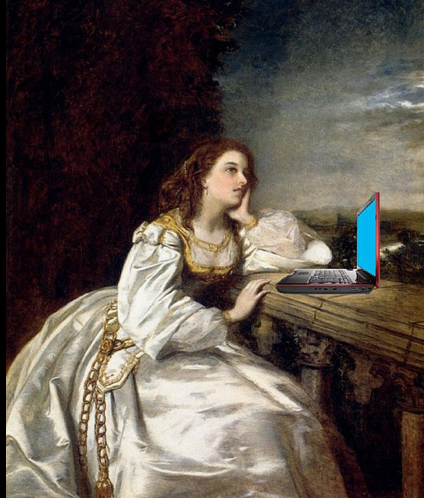
Image via Flickr Creative Commons, courtesy of Mike Licht
As an editor I have some pretty standard red flags I look for, but a REALLY common blunder is the dreaded information dump. Some genres are more prone to this than others. Science fiction and fantasy can be particularly vulnerable. How DO you keep the pace of the story and still relay about the prophecy, the starship, the dragons and the dragons prophesied to have starships?
It’s tough.
Once again we have Alex Limberg guest posting with us. And if you’re already tired of him? Suck it up, Buttercup, because I LIKE HIM. He’s helping me through the holiday season so I can dig out of the pile of work that buried me when I got the flu.
So Alex is here to share ways to help fold in information so that you (the author) don’t inadvertently shatter the fictive dream. He’s here to give you some tips on how to relay the information required so the reader isn’t confused, but also maintain the spell you’ve cast.
Definitely check out his free ebook that lists and explains “44 Key Questions” about any narrative– if you get them right, you will have an awesome story. Aaaaaand, here we go. Take it away, Alex!
*****
Some parts of storytelling are way more exciting than others.
For example, you get to page 724 of your grand novel, and finally Richard the Lionheart faces the seven-headed hydra right in front of the abyss and sends her to hell once and for all.
It’s the absolute peak of your story, nail-biting suspense, unbearable tension, action, risk, fear in the middle of a breathtaking scenery. Everything you have worked for so long, it’s all coming together.
Plus, Richard and your readers don’t even know yet that the seven-headed hydra can spit fire too. Boy, that’s gonna be some BIG surprise…!
On the other hand, some parts in fiction writing we hate.
For example, weaving in the personal history of Richard, so we get to know him better and root more for him.
Or bringing in very unobtrusively 200 encyclopedia pages of background knowledge about medieval England, to establish realistic background.
And where should you discreetly slip in the fact about the hydra’s failed gallbladder surgery?
Bringing information into your story is like forcing healthy vegetables down a kid’s throat: It’s necessary and the right thing to do, but the work sucks.
When it becomes obvious the author just wanted to insert information, that’s an information dump. What an ugly word!
But it seems like the word exists for a good reason.
Think about it: Somebody took an information dump. That’s when the information comes out and it’s too concentrated, and you can smell the author’s intentions 100 miles against the wind.
Imagine Tracy telling her husband over dinner: “I don’t love you anymore like I loved you 16 years ago when we married. Me and our son Philipp, who is 15, has outstanding grades and dreams of a career as a professional hockey player, lost all our respect for you when you drunkenly caused that car accident. I like cooking and painting and I’m afraid of being alone, that’s why I’m still with you, but I have an affair with our neighbor who is a certified animal trainer.”
The hand of the author becomes really visible here…
Fiction shouldn’t list facts like a newscast. If we wanted to read the news, we would go on the New York Times website (and some of us would actually buy a newspaper, or borrow one from the waiting room of our favorite doctor). In fiction, the reader wants to be gently taken by the hand and led into the carefully woven illusion.
But how can we do that?
They say Don’t give them fish, give them a fishing rod!, and so it shall be. There are a million ways to discreetly distribute some pieces of tasty sushi amongst your readers– you can and should be very creative with it! But start with these five basic ways to avoid an ugly pile of information:
1. Let Your Characters Say It
No, you, the author, got nothing to do with it; it’s your characters who are spreading all that good information like wildfire. Keep in mind the key rule though, so your readers don’t feel cheated on: Your character needs to have a reason to mention the information!
The two most natural reasons that come to mind are:
He has to pass his info on to another character who doesn’t know about it.
Imagine a colonel who has to report some military information to his general about what just happened in battle.
The character’s emotions are boiling over.
Imagine the accusation of an overworked co-worker to a lazy colleague: “I’m so sick of this! You never get your tasks done on time!” Or take enthusiasm: “Jim, you will never believe what just happened! I won the lottery!”
It’s a very natural and discreet way of smuggling some high-octane info into your story.
2. Don’t Tell the Show
Here it comes, the old Show, don’t tell!
While in some cases it is okay to say “Uncle Albert was tired,” it’s generally much more literary to let the reader discover herself how tired Uncle Albert was.
Describe the “dark circles” under his eyes, his constant yawning and how he forgets his keys at the office. Often it’s much more elegant to not tell about a condition or past events, but to show a couple of clues that hint at them.
3. Spread Your Info Thin
Small chunking over many pages or chapters makes your info a lot more unobtrusive than serving it in one big indigestible cluster.
It’s often convenient to let your reader have the info a little while before she actually needs it; in any case, make sure she doesn’t get it right before she needs it, because that would really look constructed.
Sometimes, a piece of info isn’t absolutely necessary to understand the story, but it gets the reader more involved emotionally. Because it’s not vital, you have more time to nicely gift-wrap it with a ribbon on top– but on the other hand, the longer you wait, the longer you leave out an opportunity to engage your reader further.
For example, we don’t have to know that Walter White has terminal cancer in Breaking Bad. We already understand that he is producing meth and can follow the trouble he gets himself into.
But when we learn about his cancer, it lets us empathize and identify with him more– his decisions become easier to understand, he becomes a more multi-faceted character and thus the story engages us more.
You have more time to bring in information like this.
4. Harness the Power of the Media
From where does the most overwhelming flood of information descend upon us unsuspecting characters?
From the mass media, of course: TV, radio, newspapers and internet. You can let your readers know much just by letting the character watch TV or read the newspaper out aloud to his wife; and any info mankind never wanted can be found on the internet (except for why girls are so much into Justin Bieber). Just make sure your character has a reason to look for the info.
Likewise, make sure the info is available to the media and it’s interesting enough for them to broadcast or feature it.
That’s not too hard to do, because as author David Mamet famously said:
“The audience will not tune in to watch information. You wouldn’t. I wouldn’t. No one would or will. The audience will only tune in and stay tuned in to watch drama.”
So don’t be shy about letting the media rule even over your little yellow press scandals, man-bites-dog style.
5. Plain description: Just Say It!
Sometimes it may be acceptable when the author simply states information.
How well this works will depend on the overall style and tone and the point of view of your story; it’s basically a question of distance between the author and his narration.
Look at the beginning of Suskind’s Perfume, for example: “In the eighteenth century in France lived a man (…) His name was Jean-Baptiste Grenouille (…) not because Grenouille was second to these more famous villains in pride, contempt for mankind, immorality (…)” Plainly stating how it is, upfront.
This style reminds of some short stories, in which the narrator assumes a more zoomed-out position, because there simply aren’t enough pages to carefully spoon-feed information to the reader.
In general, this position is less elegant and artistic, but you can make a virtue out of a vice: If the large distance to your character seems believable and fits into your story, your readers will just accept it as “your style of choice”– a choice of speeding things up, that is.
Just be aware of your choice, should you decide to use this technique.

Alex Limberg is blogging on ‘Ride the Pen’ to help you boost your fiction writing. His blog dissects famous authors (works, not bodies) and he is now tired of talking about himself in third person. Create intriguing stories with my free ebook “44 Key Questions” to test your story. Shakespeare is jealous. I have worked as a copywriter in Hamburg and also lived in Vienna, Los Angeles and Madrid.
Ok, that was nice.
Now it’s your turn: How do you stuff that stupid information in there? Are your characters helpful or couldn’t they care less? Isn’t it a good feeling when the reader finally gets what he should know? Do you like information about information?
Remember that comments for guests get double love from me for my contest!
I love hearing from you!
To prove it and show my love, for the month of DECEMBER, everyone who leaves a comment I will put your name in a hat. If you comment and link back to my blog on your blog, you get your name in the hat twice. What do you win? The unvarnished truth from yours truly. I will pick a winner once a month and it will be a critique of the first 20 pages of your novel.
And YES, I AM BEHIND. I will announce November’s Winner on Monday. Holidays and all that jazz. Also, remember to check out the new classes listed at W.A.N.A International. Social Media for Writers, Blogging for Writers, and Branding for Authors.











